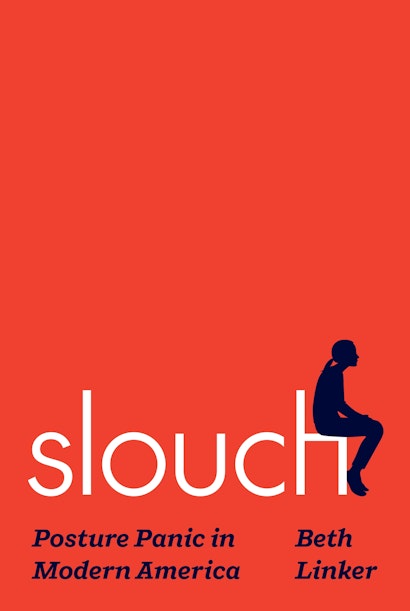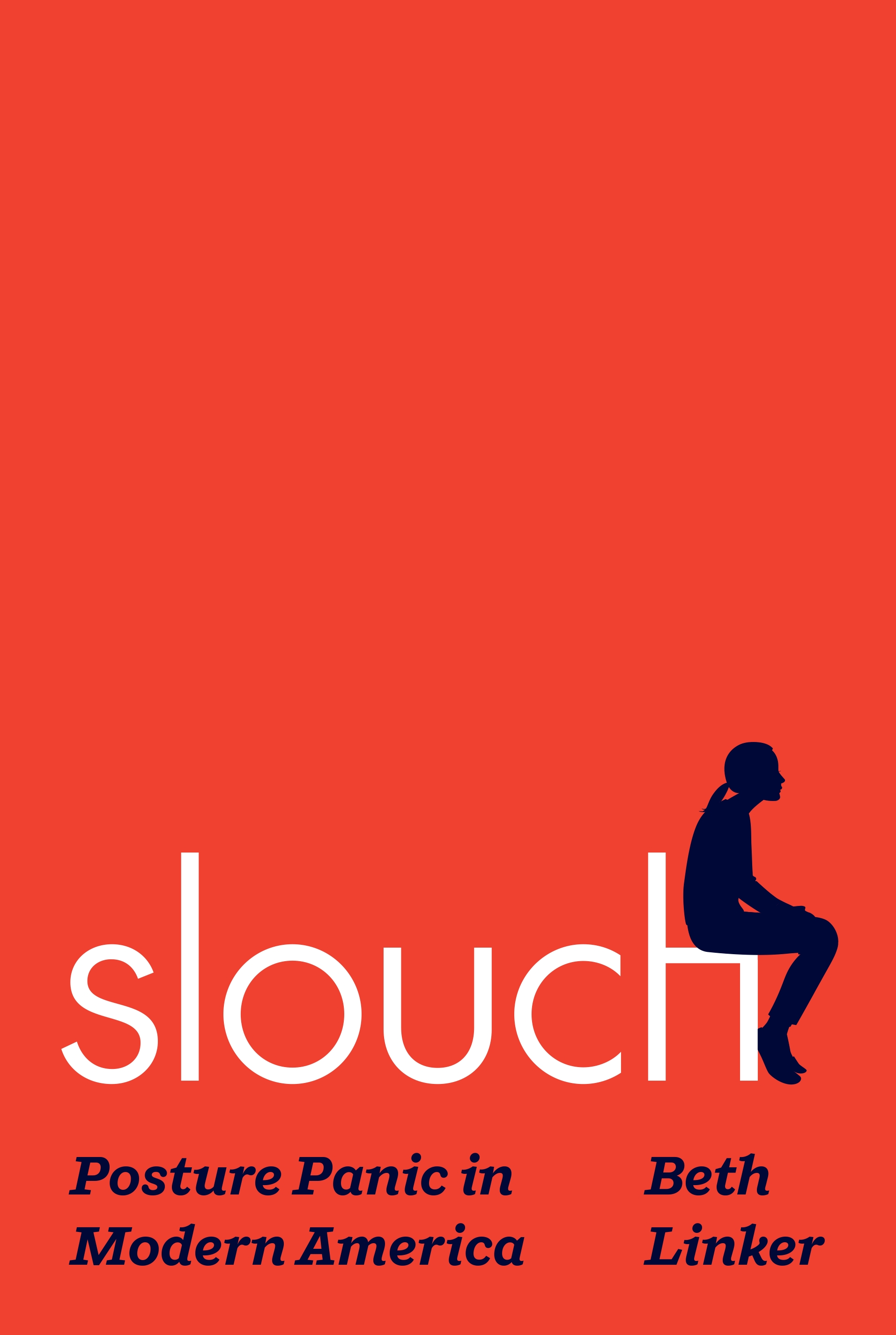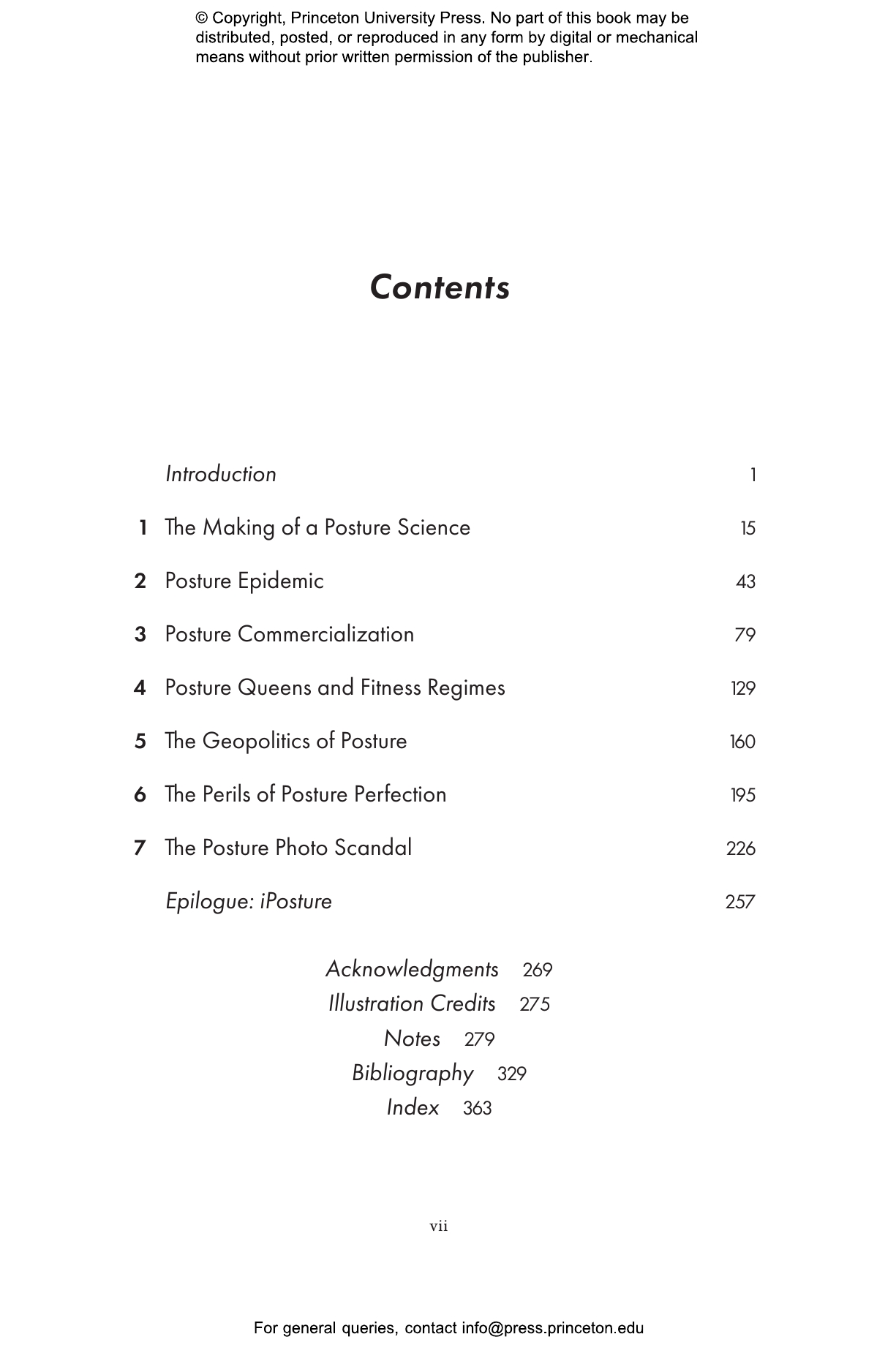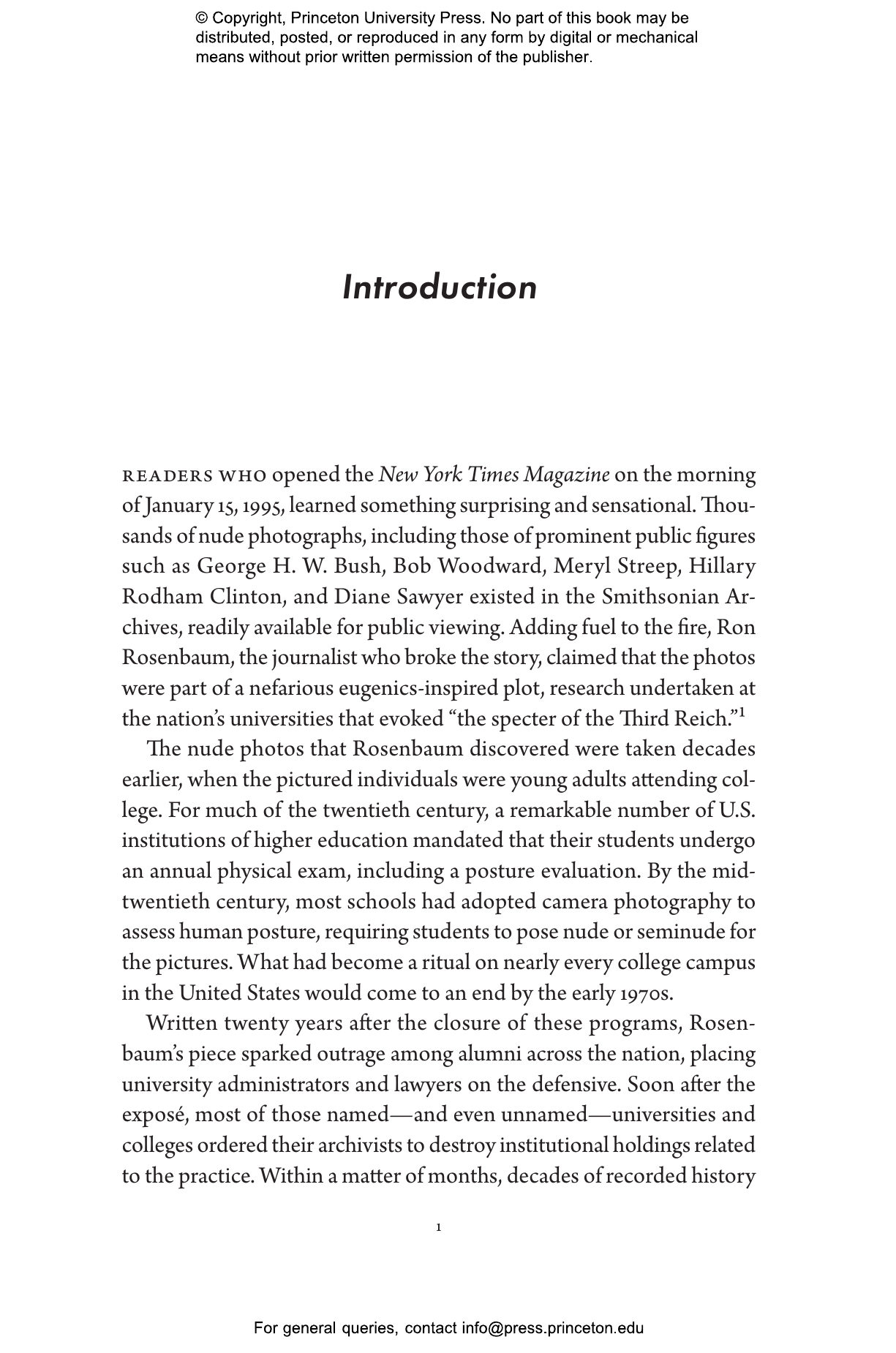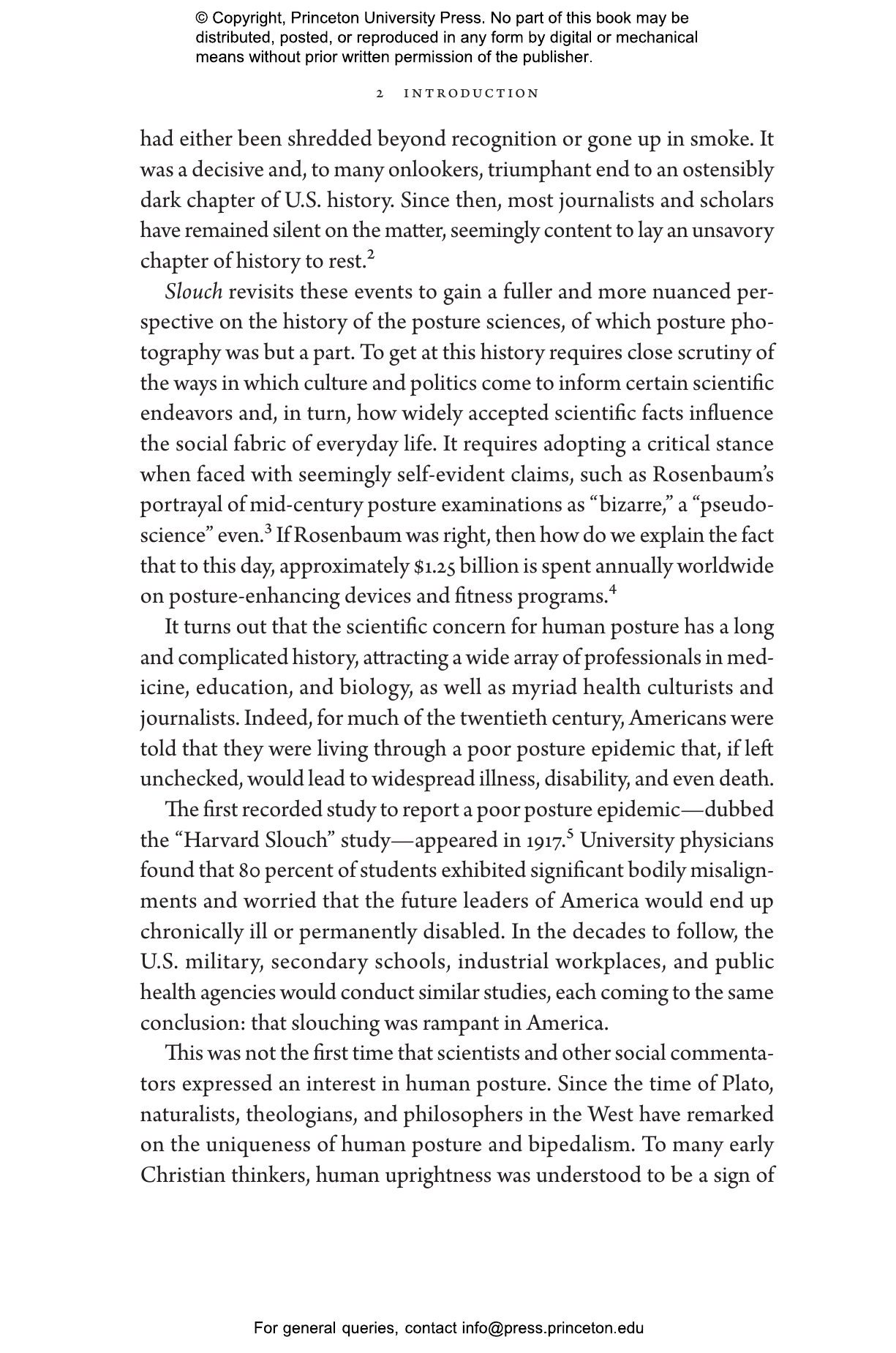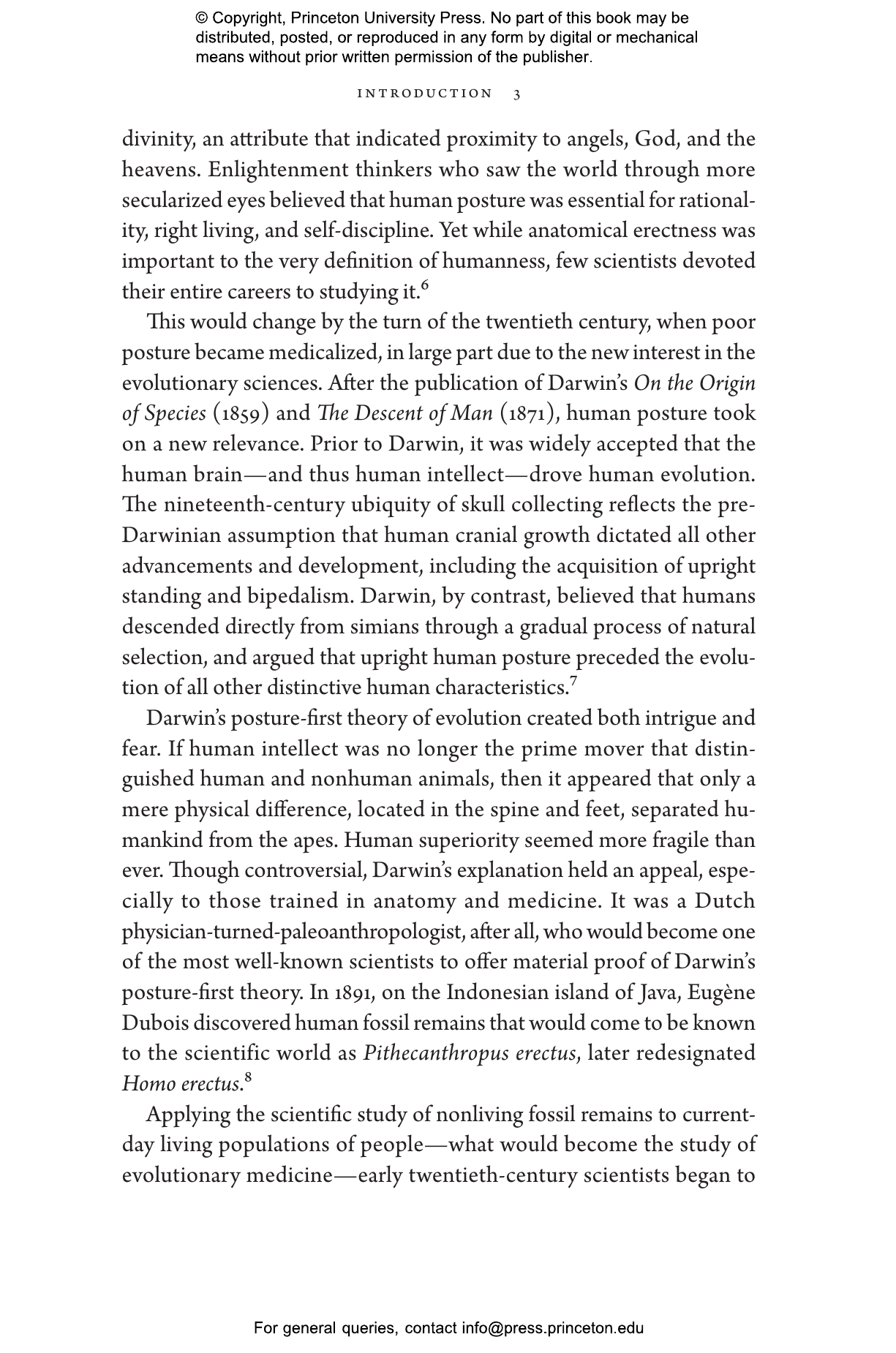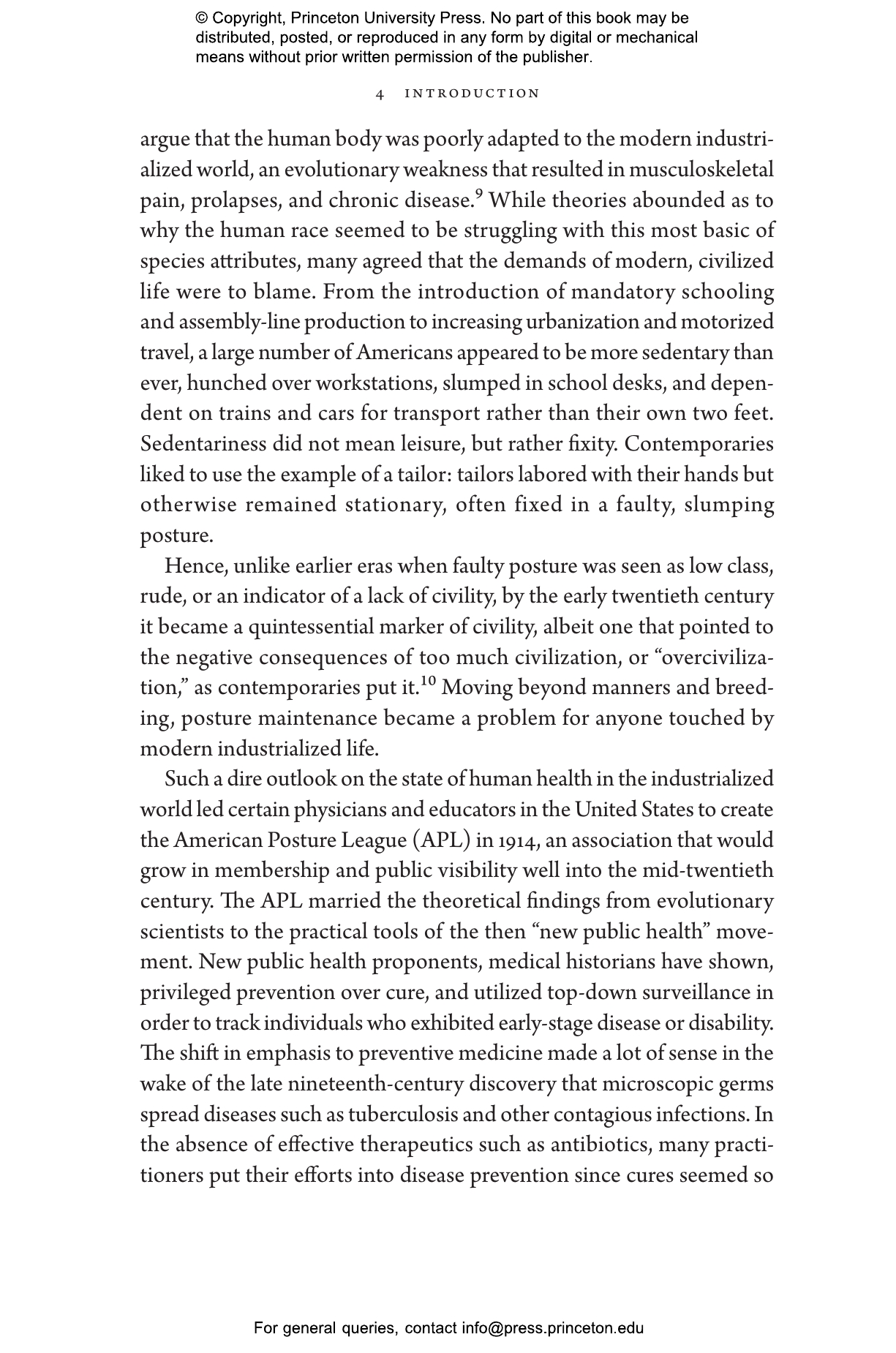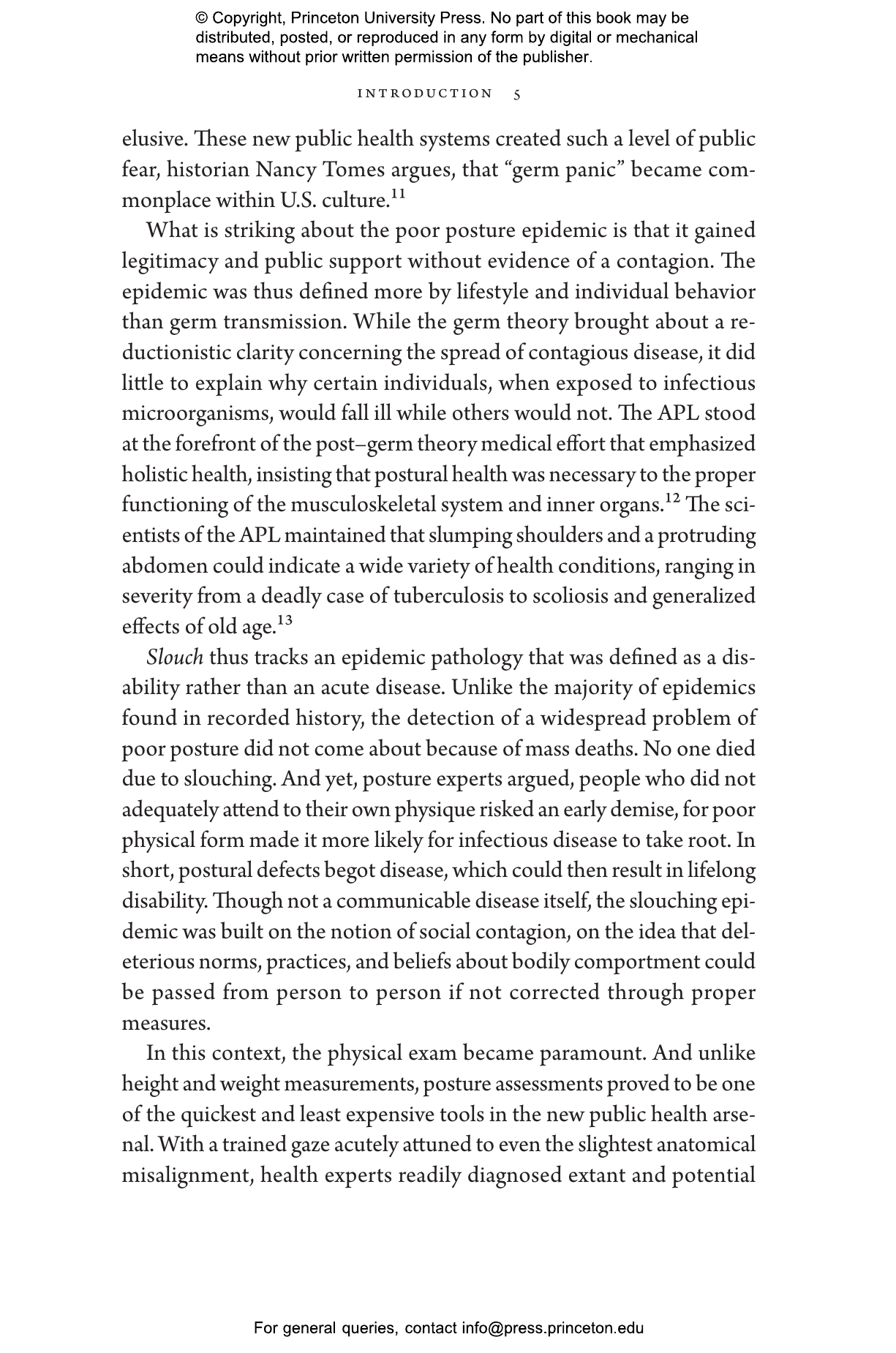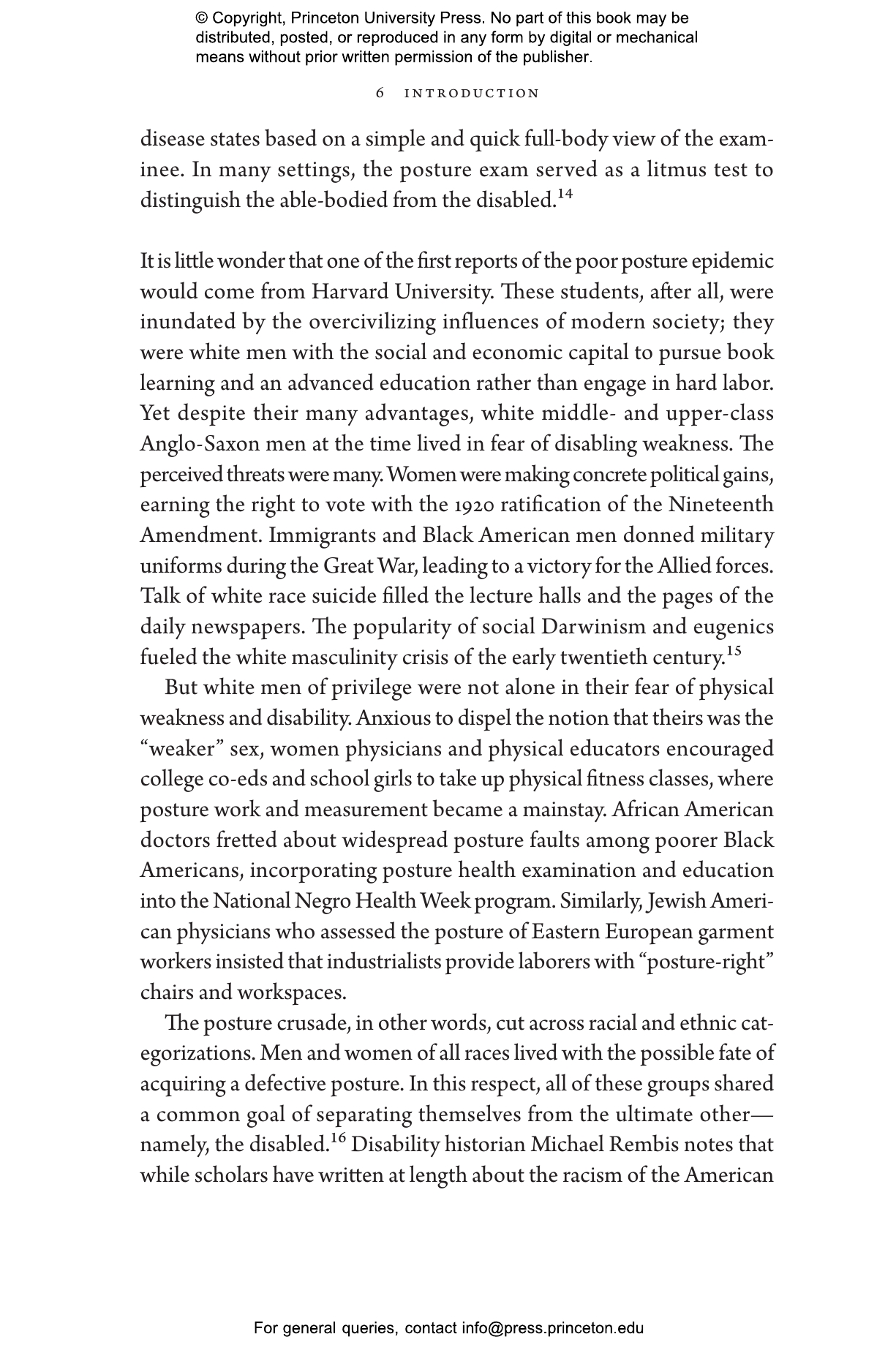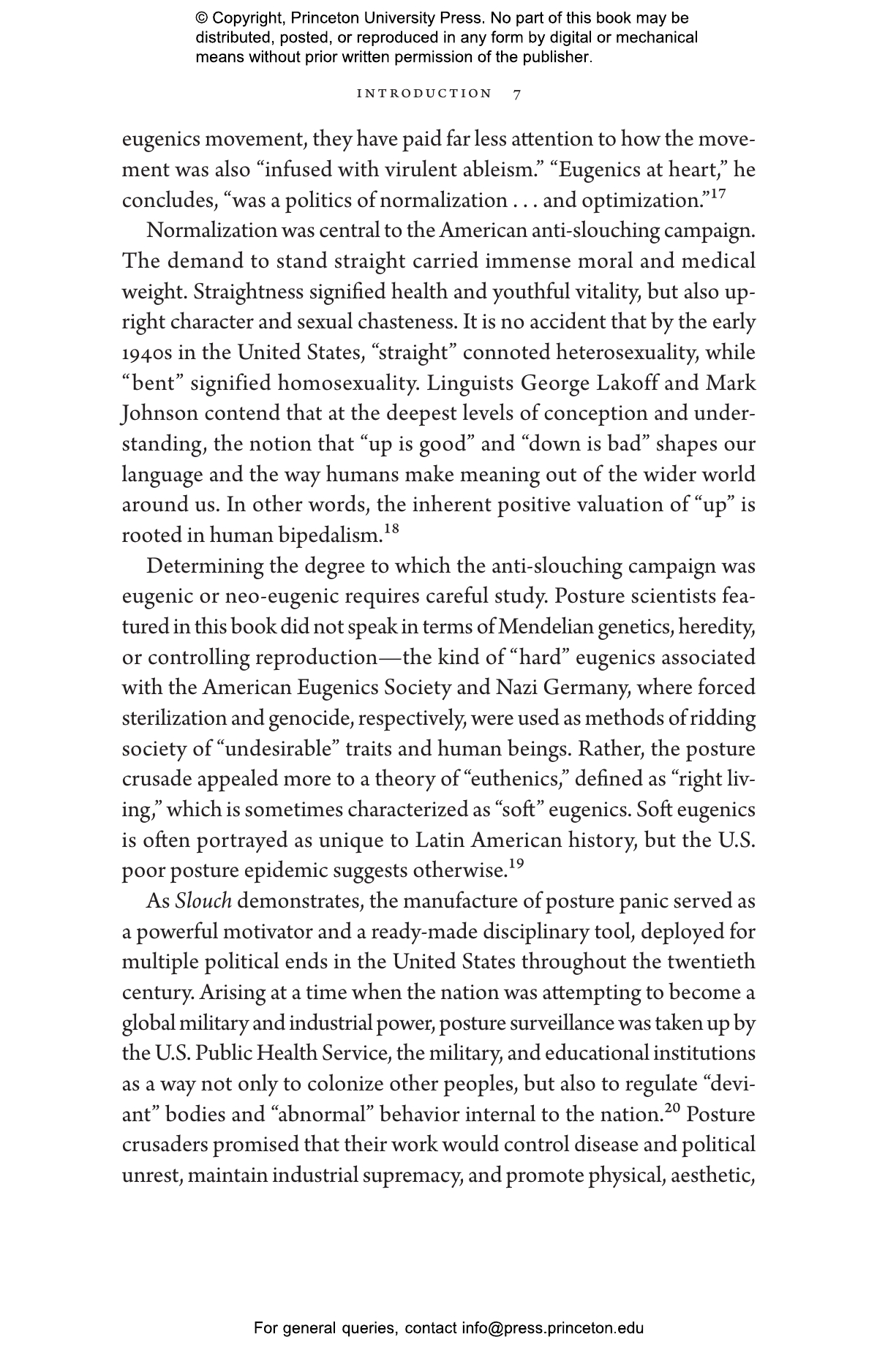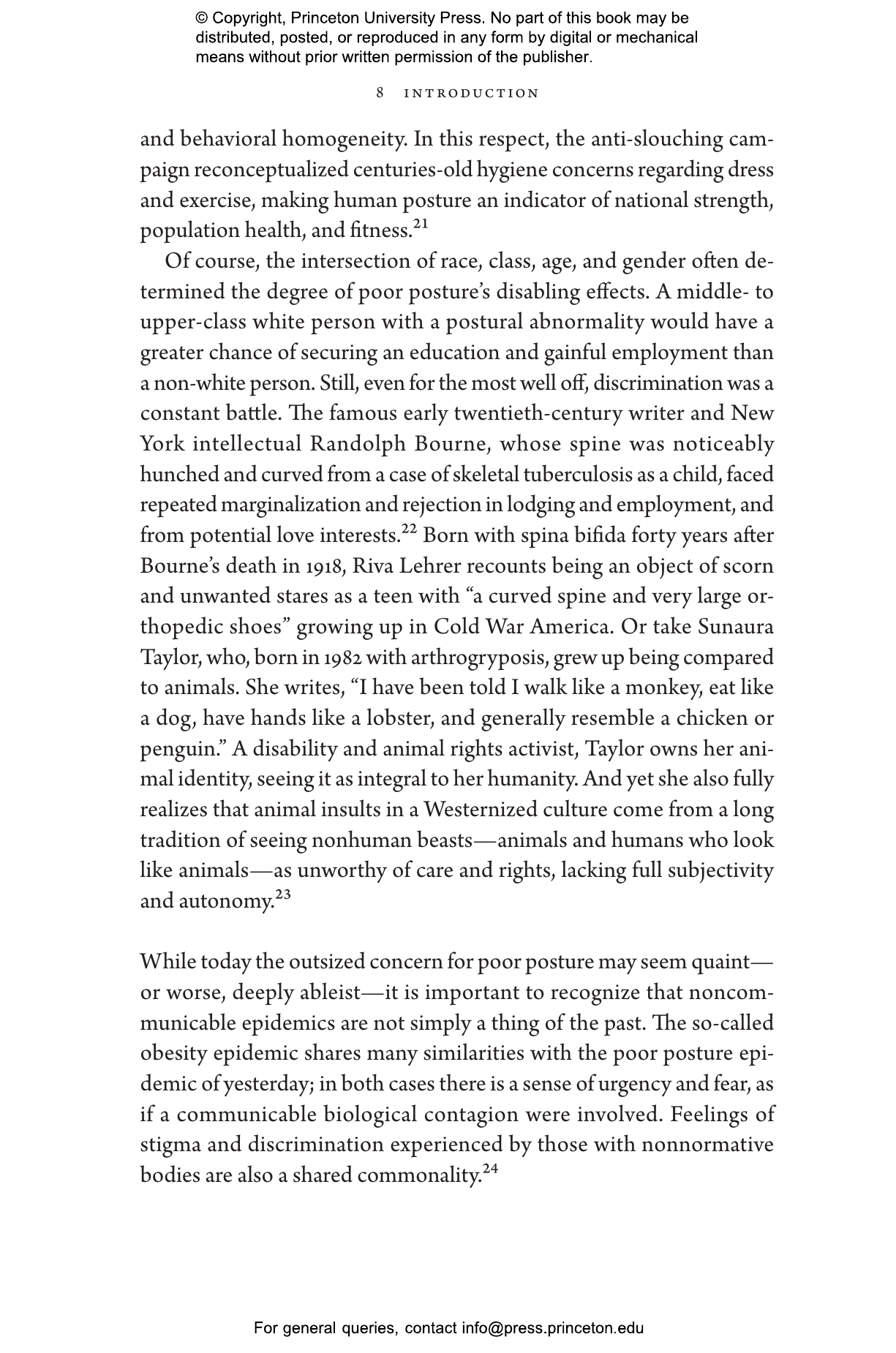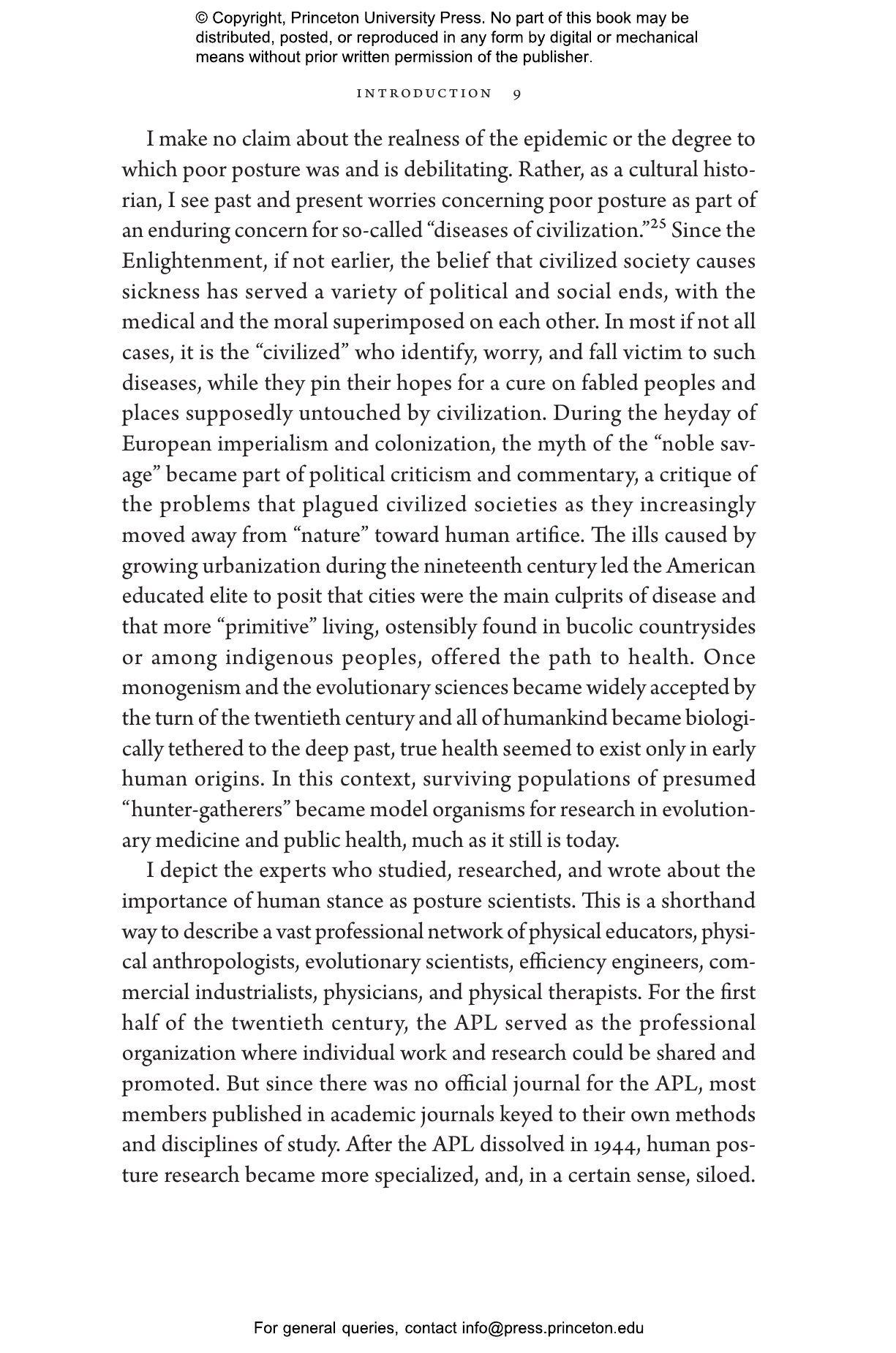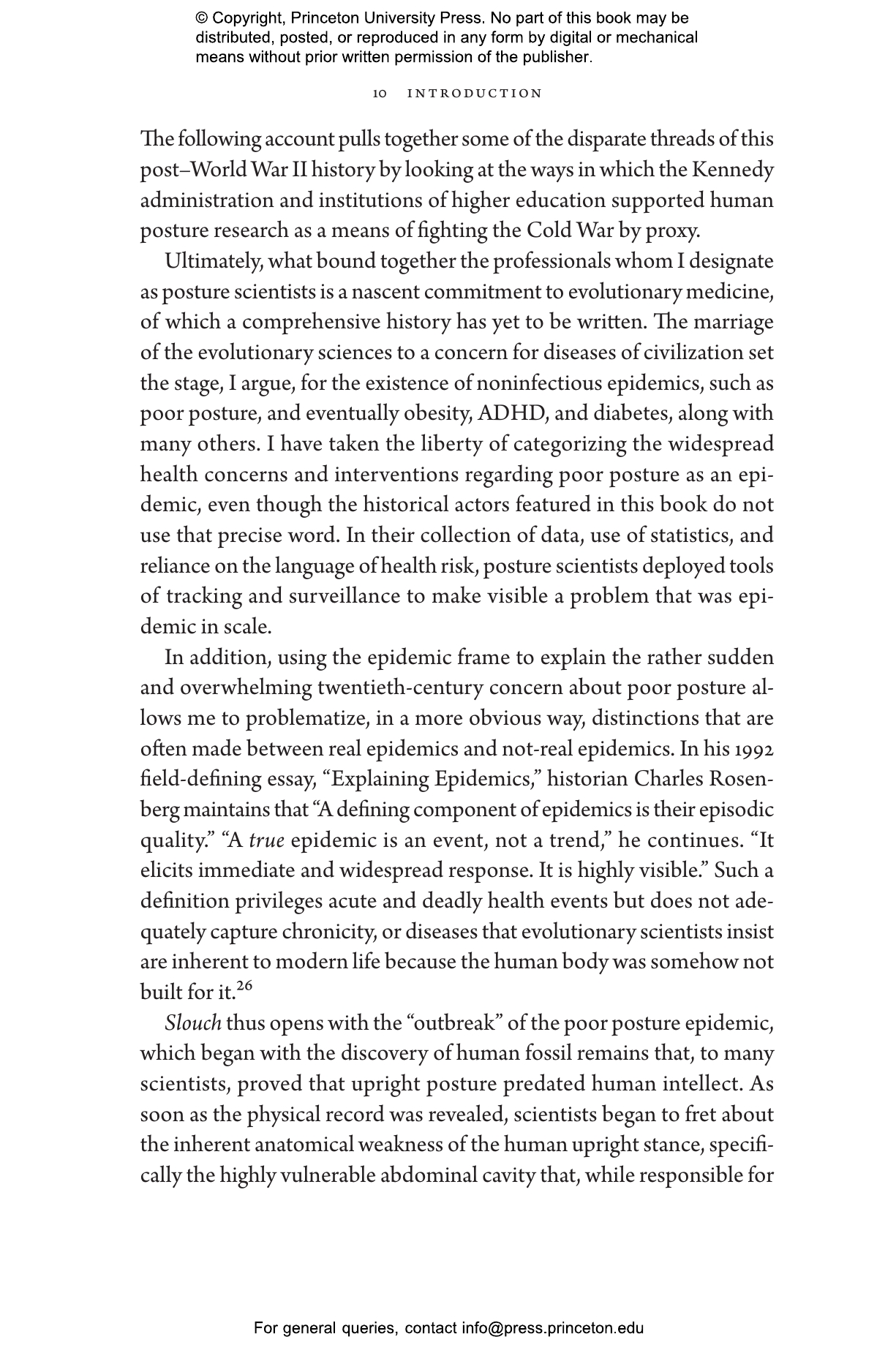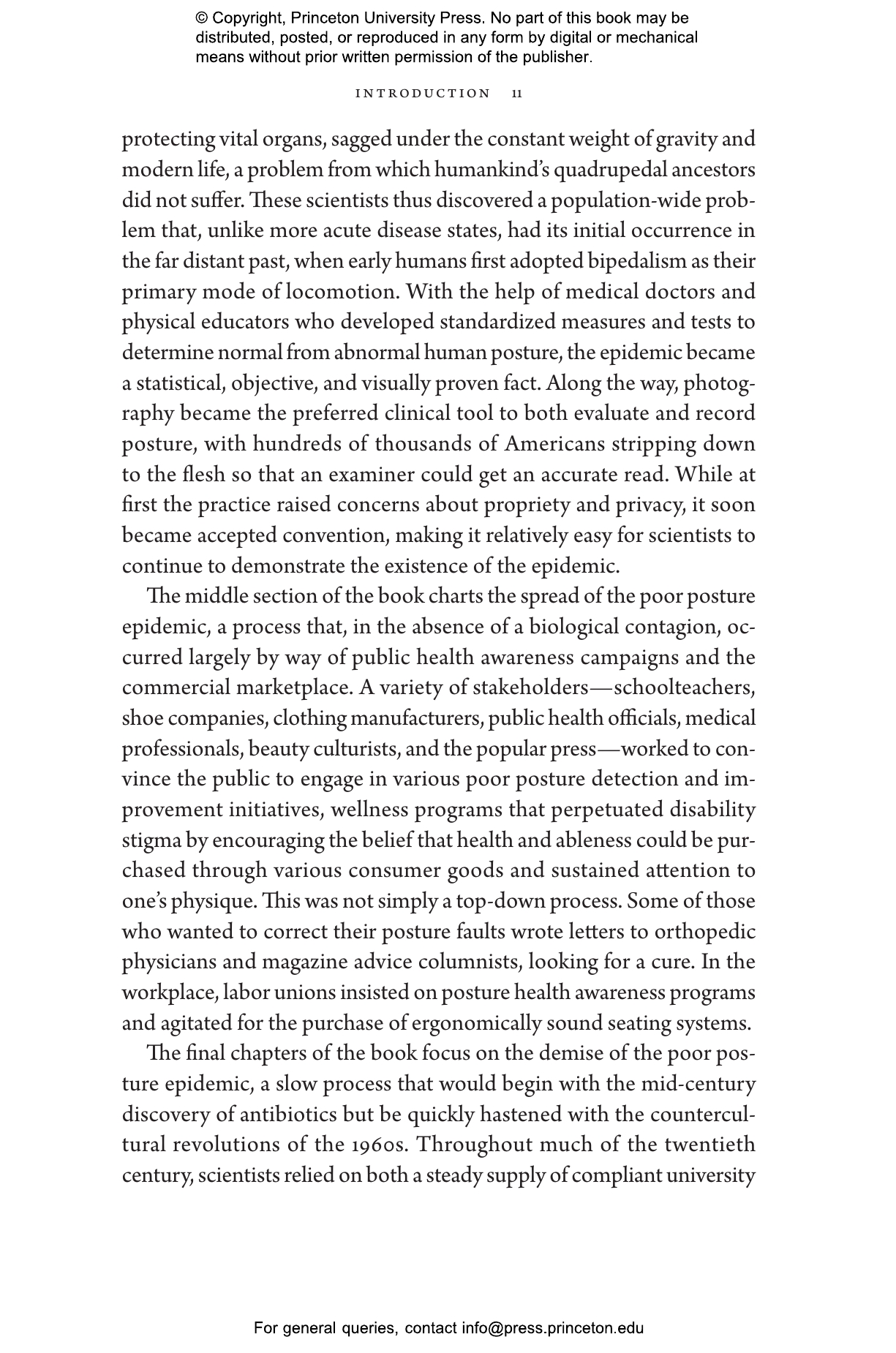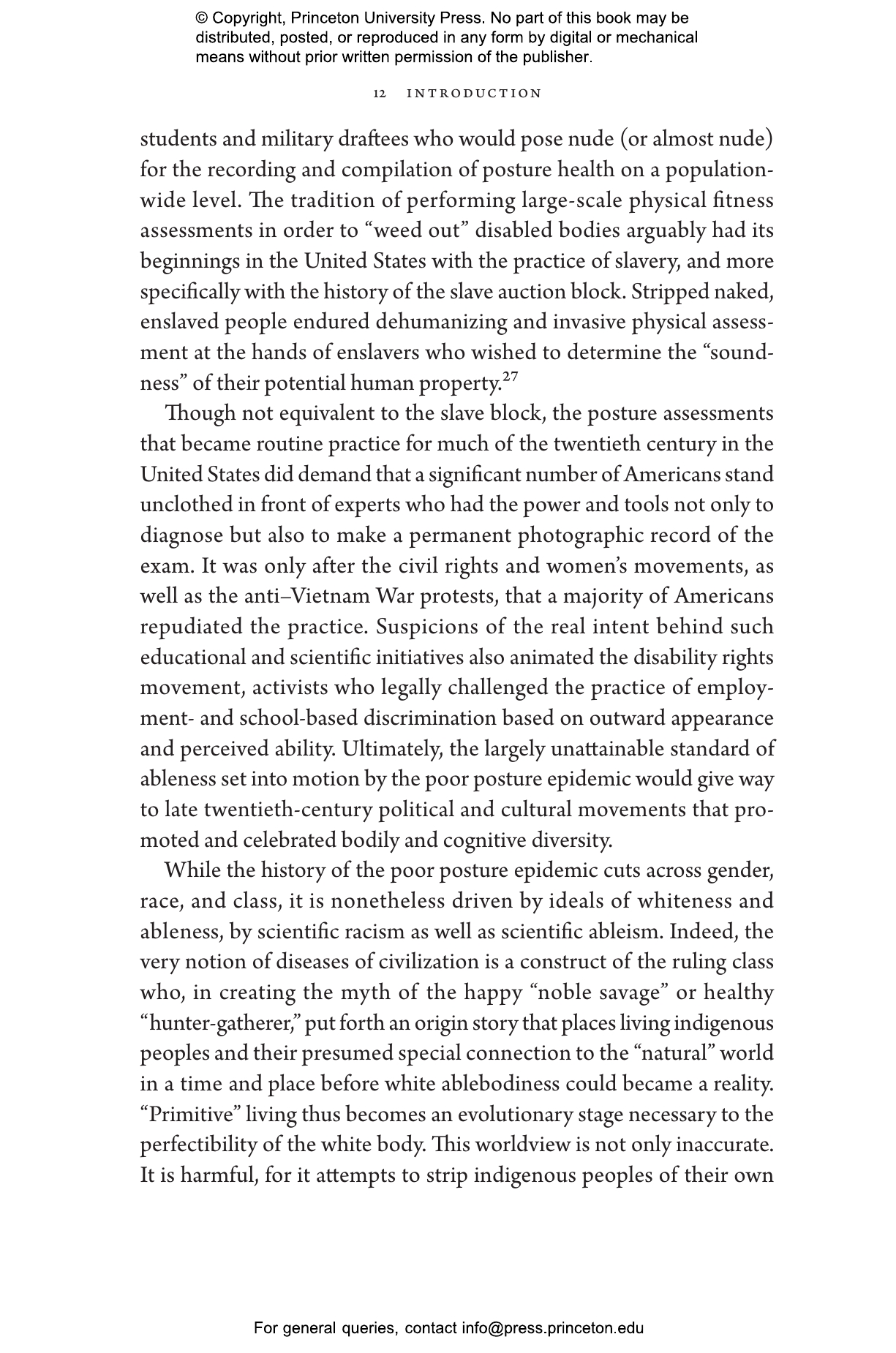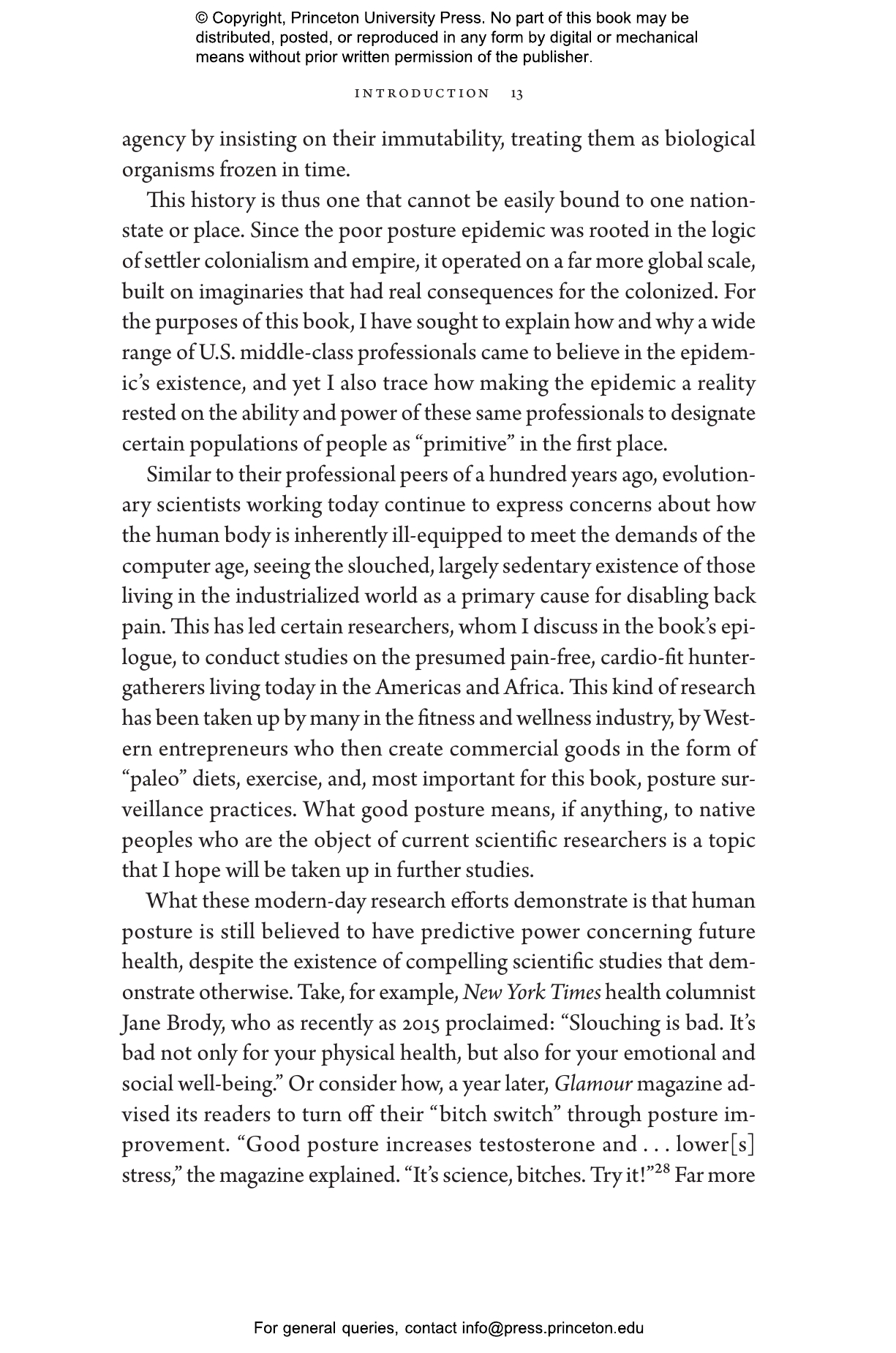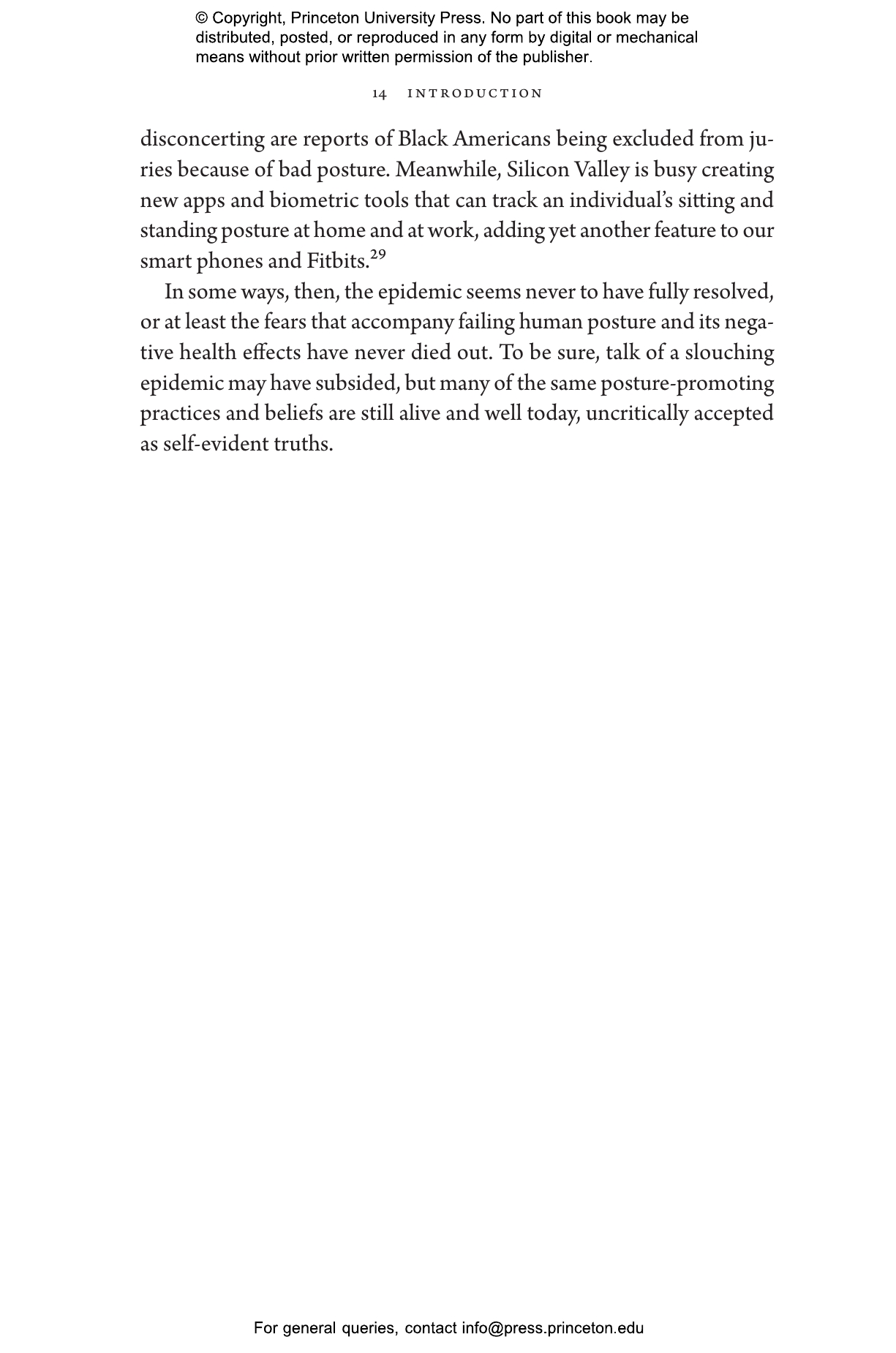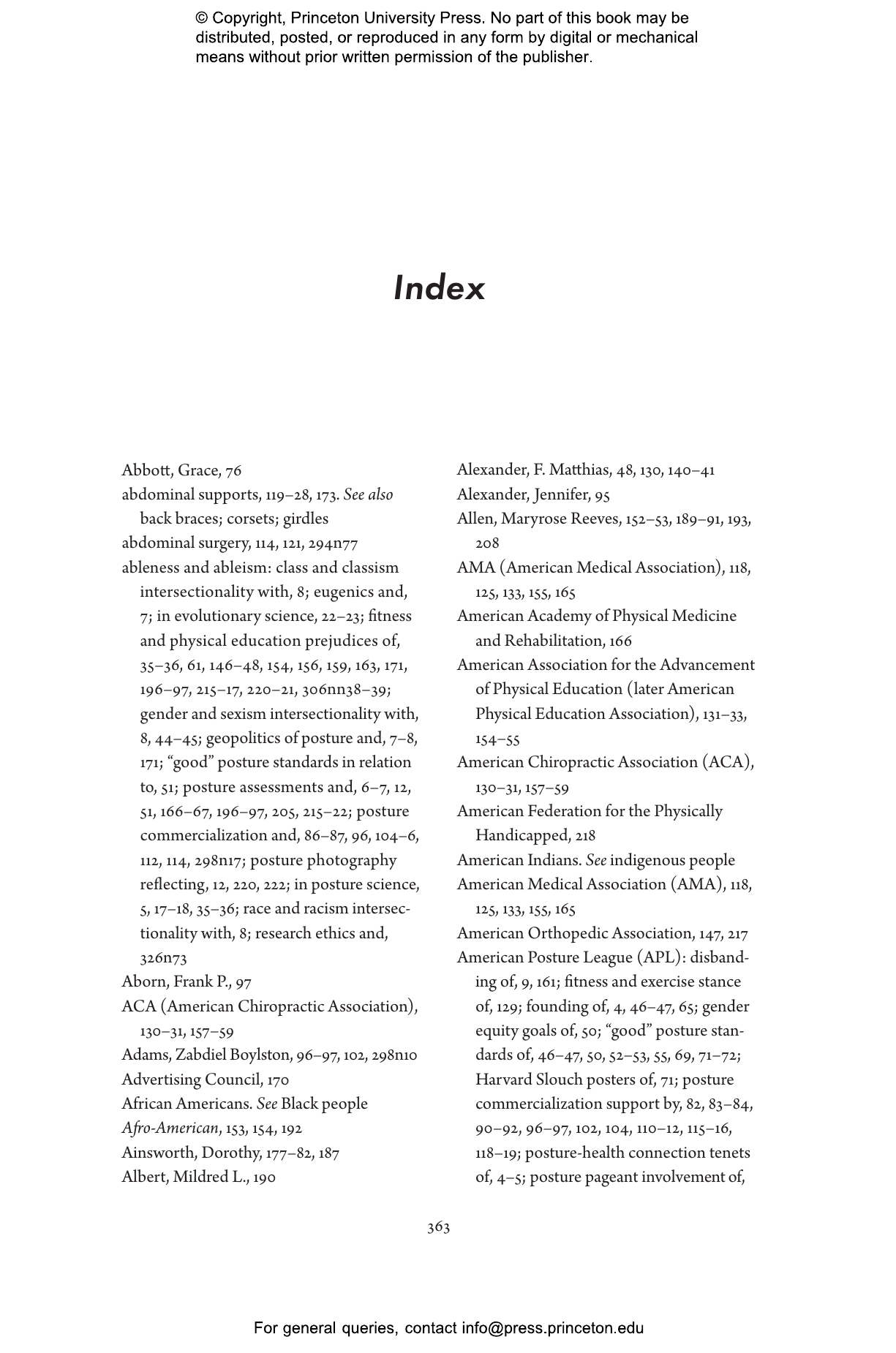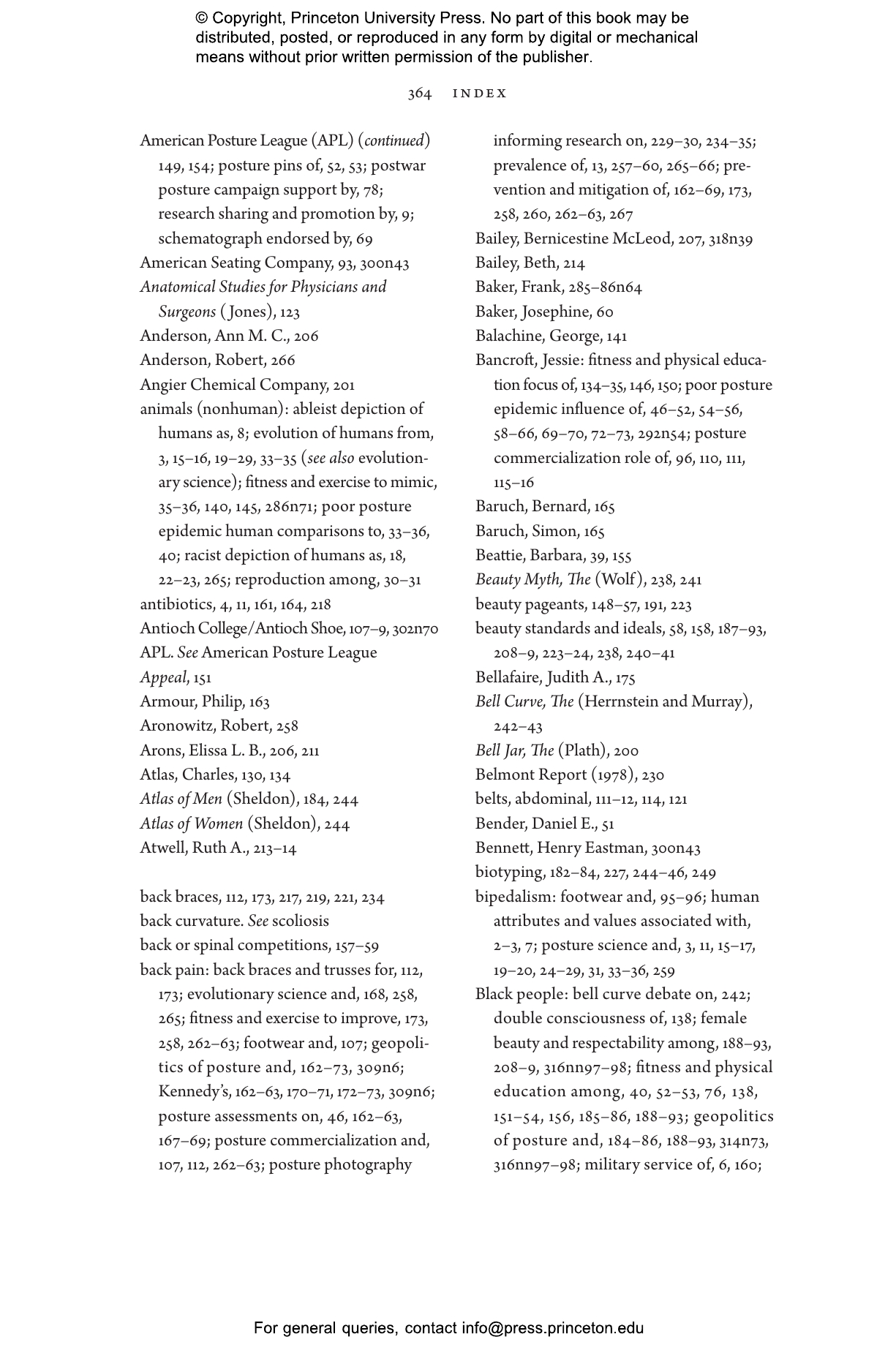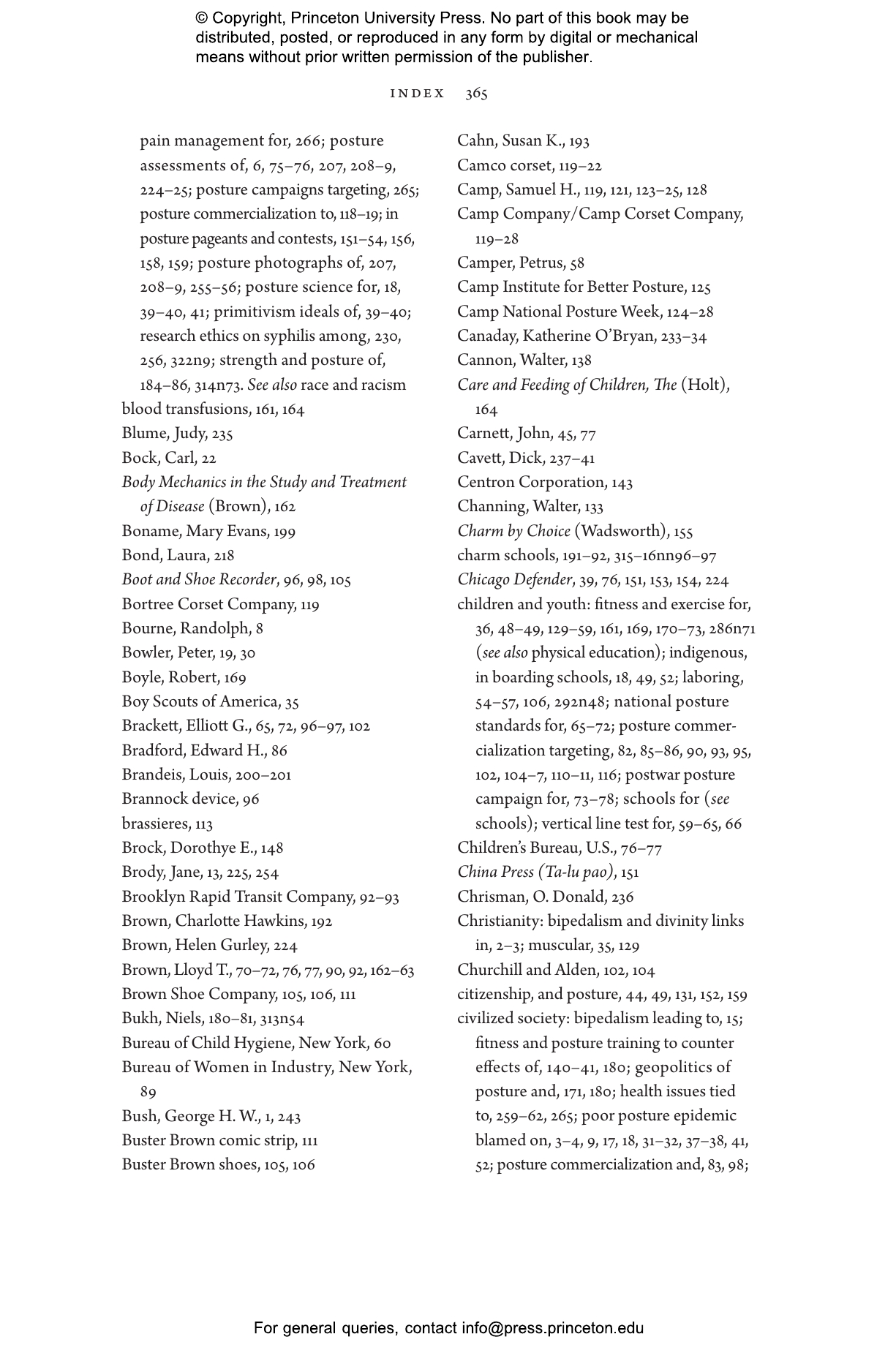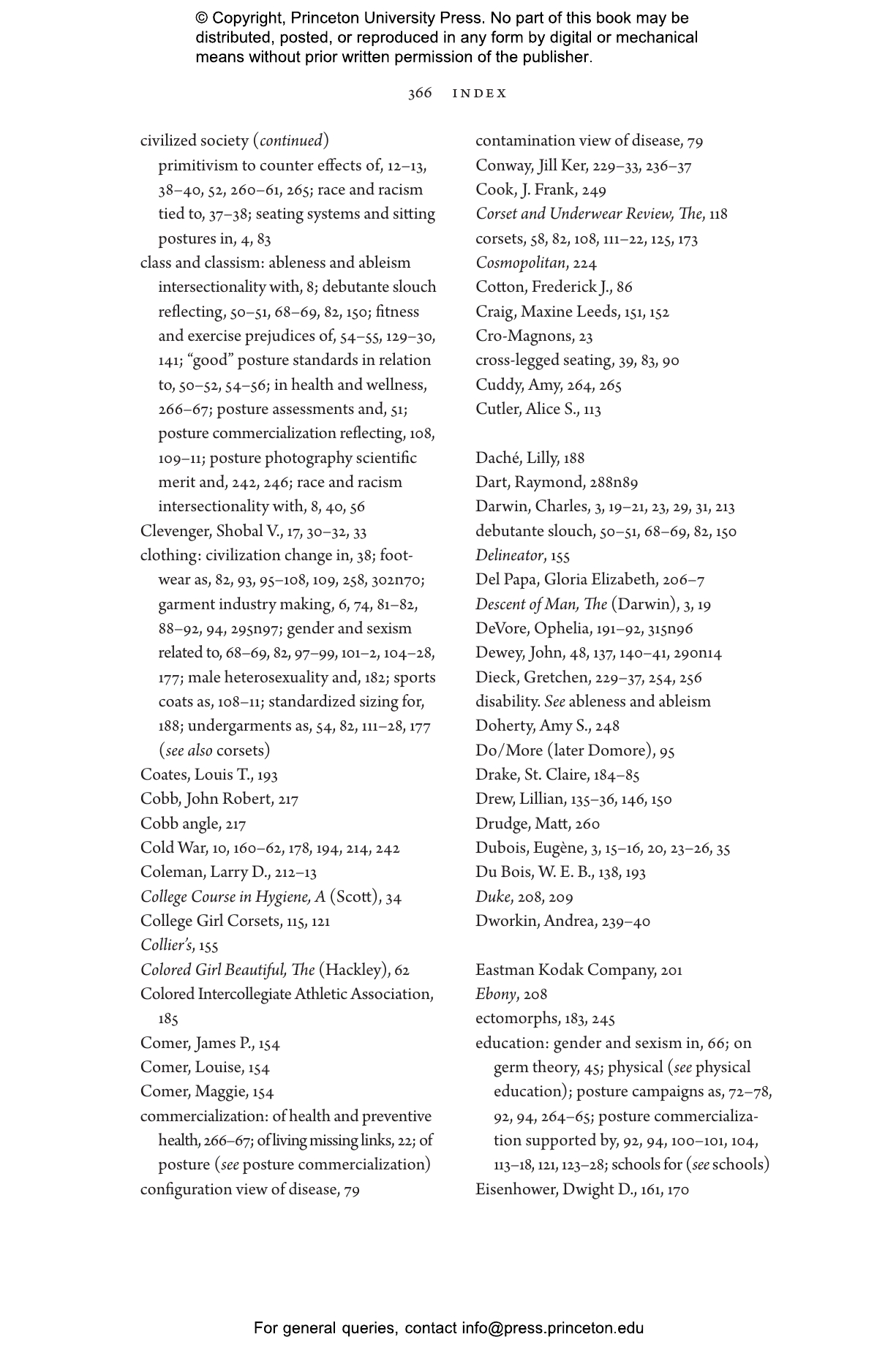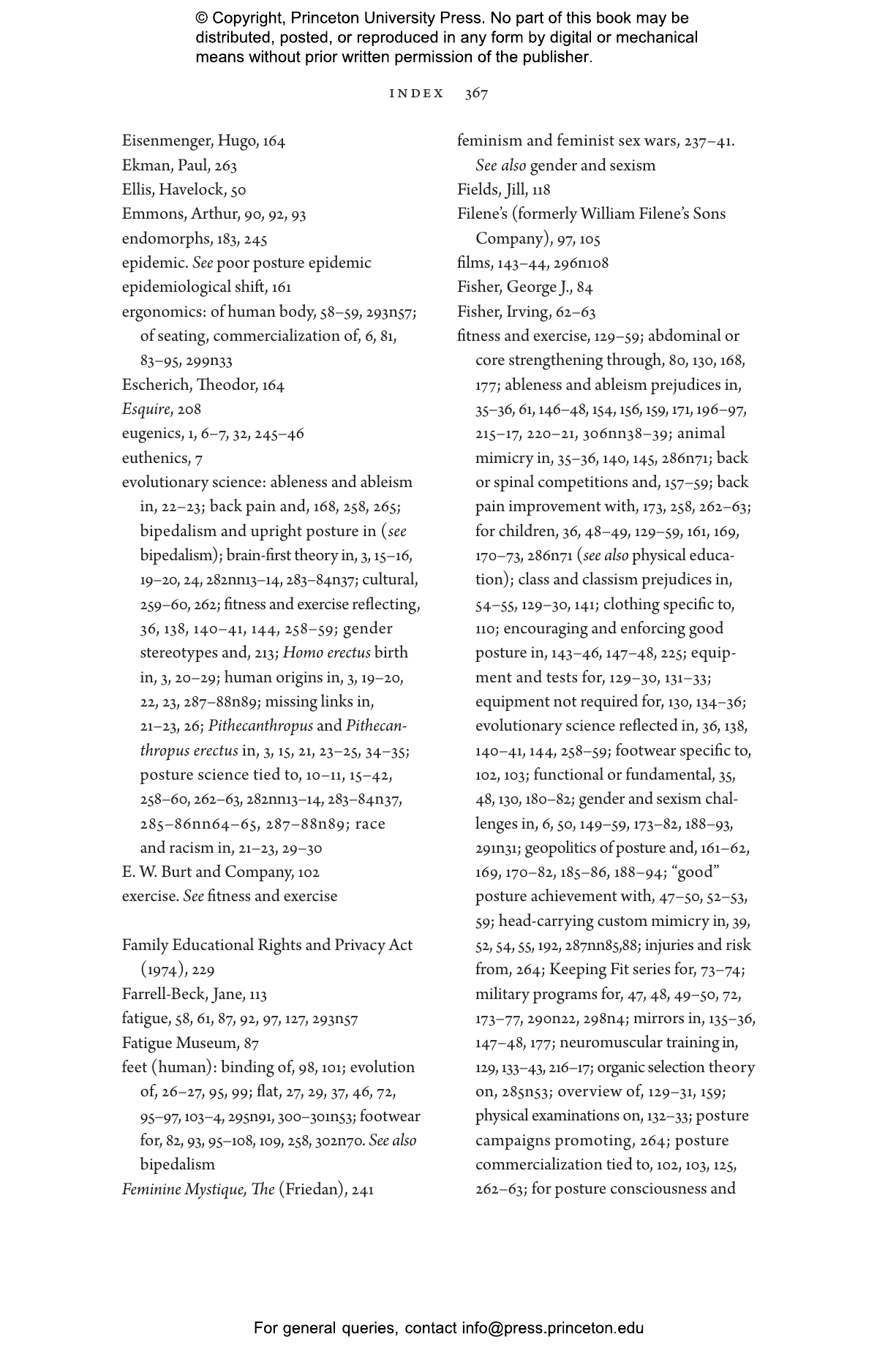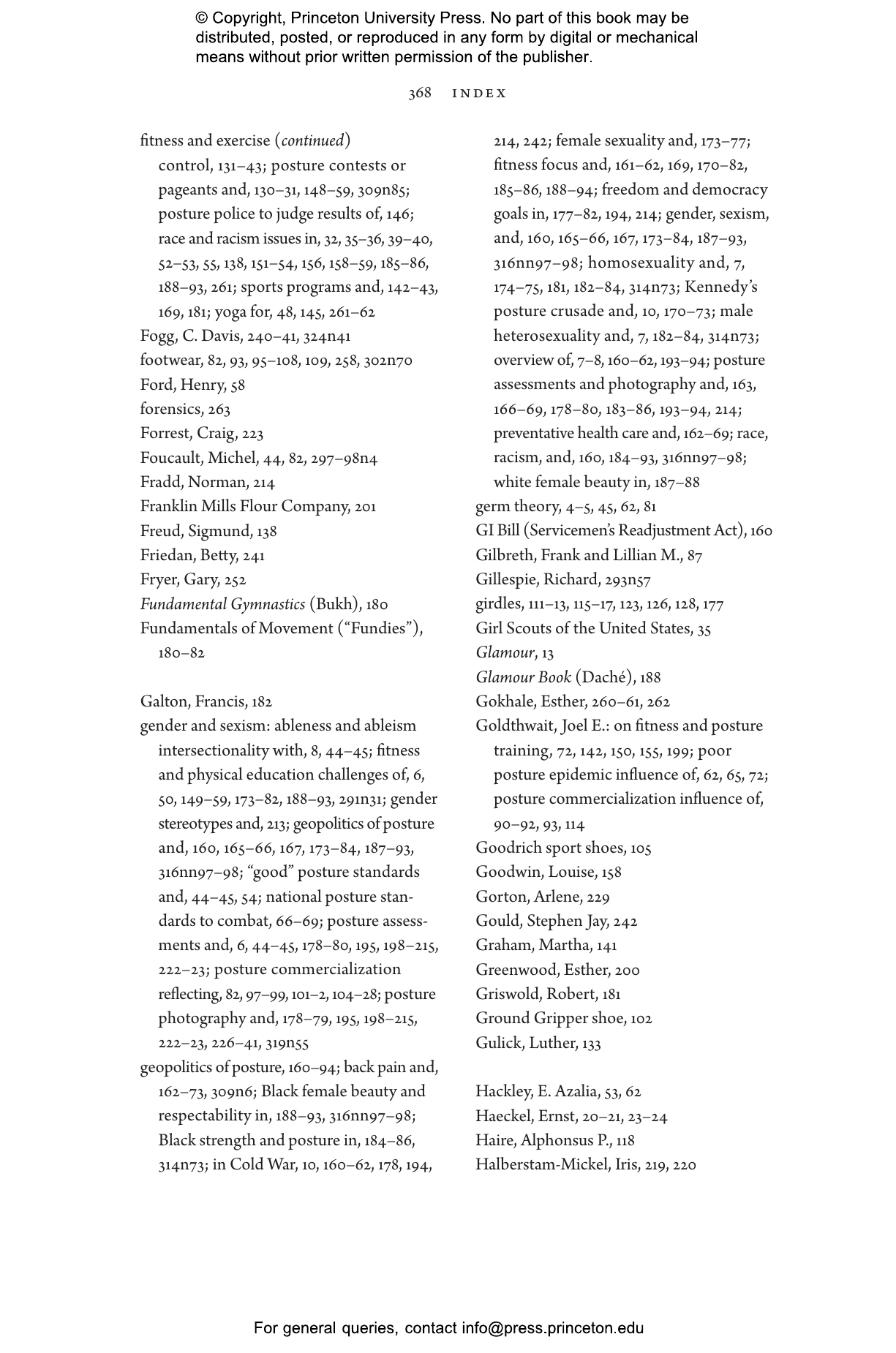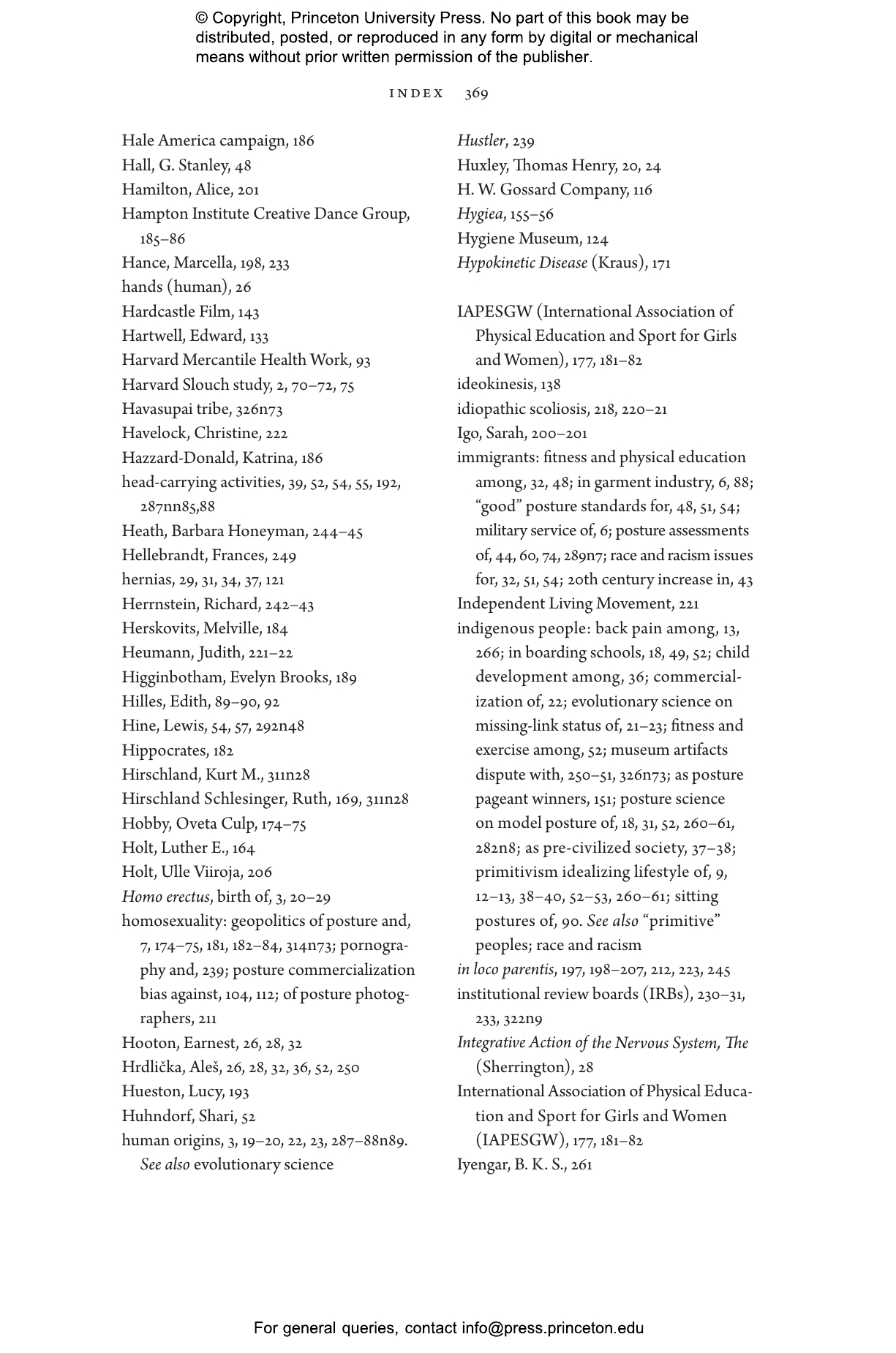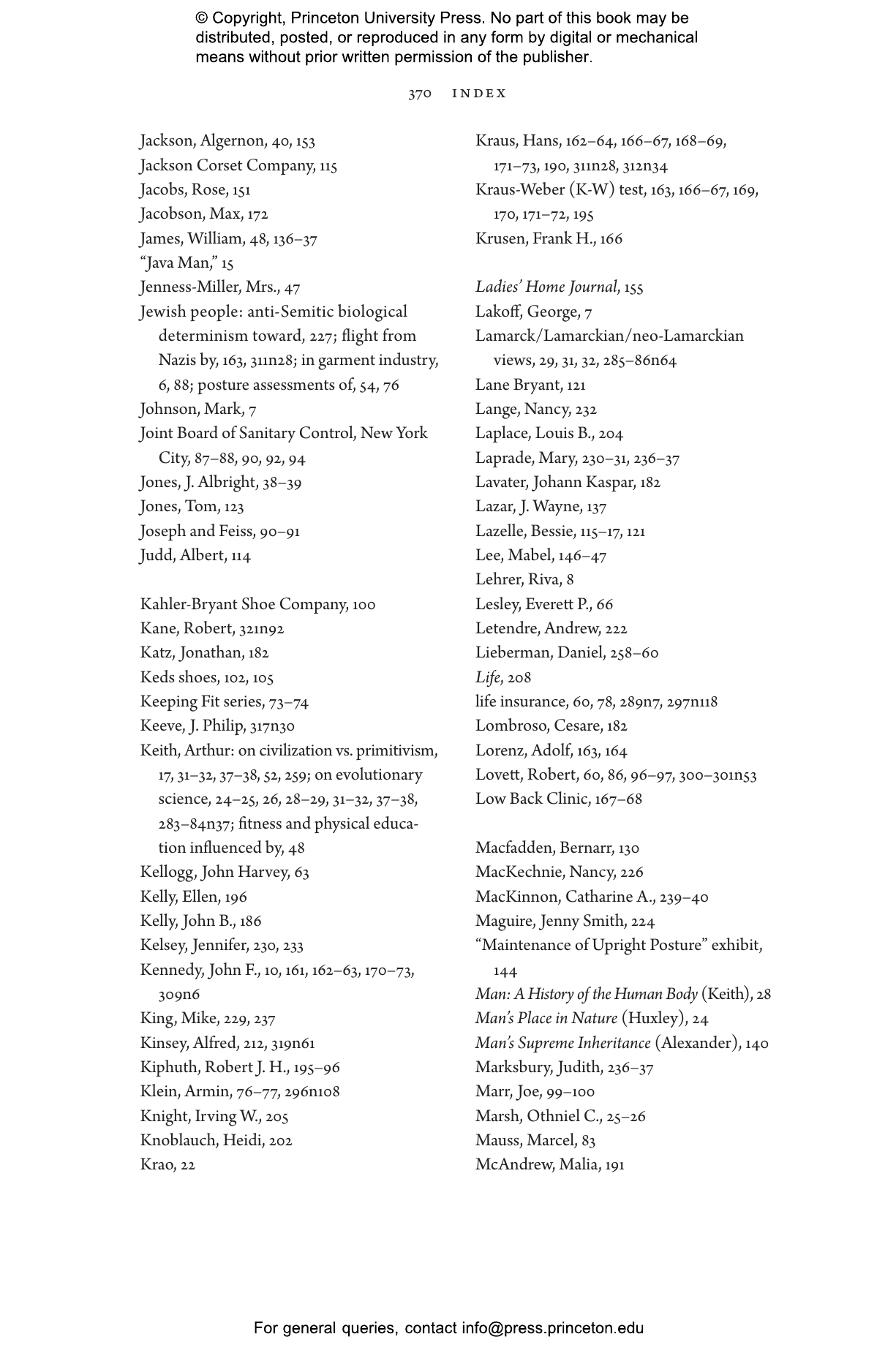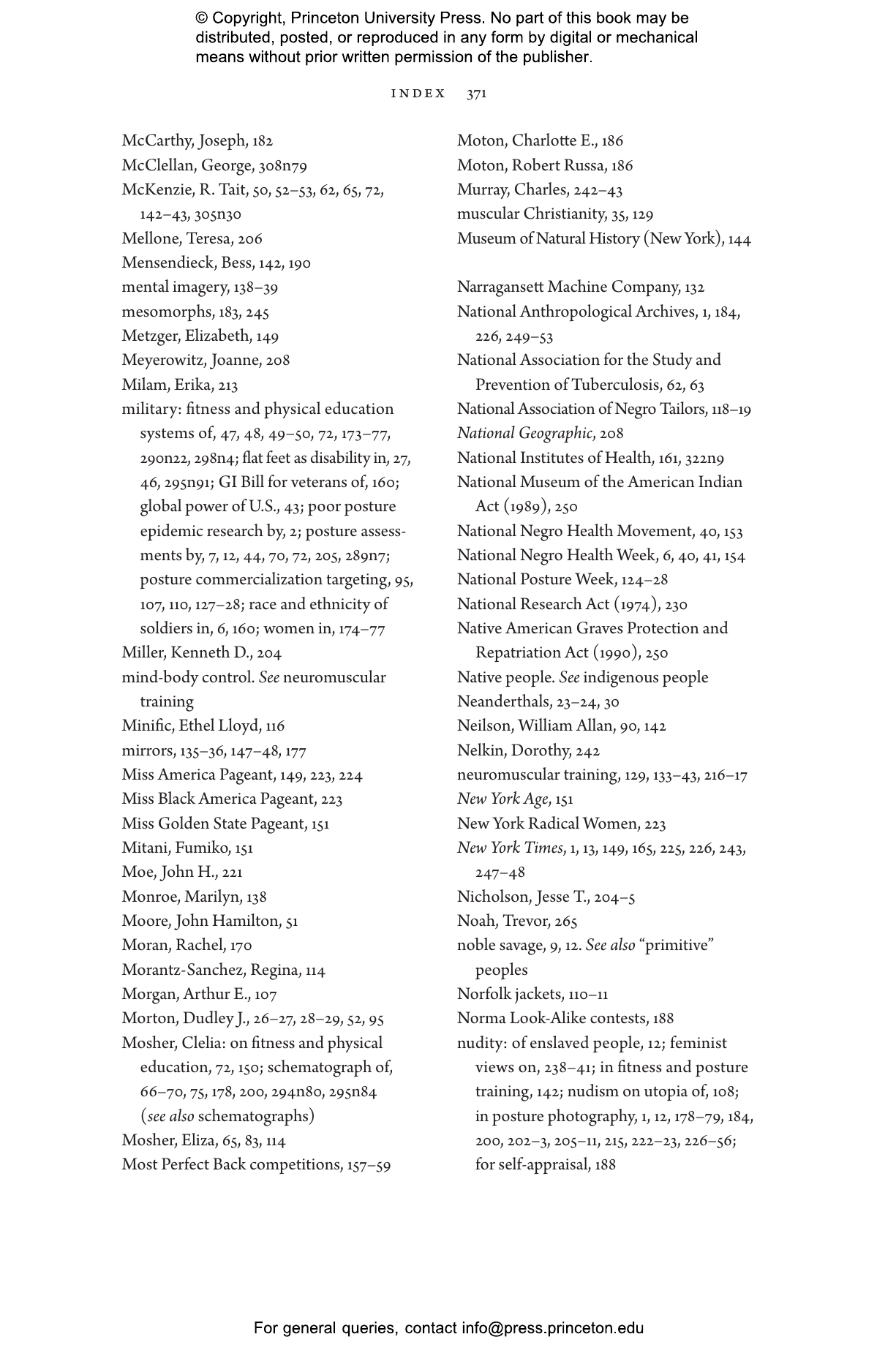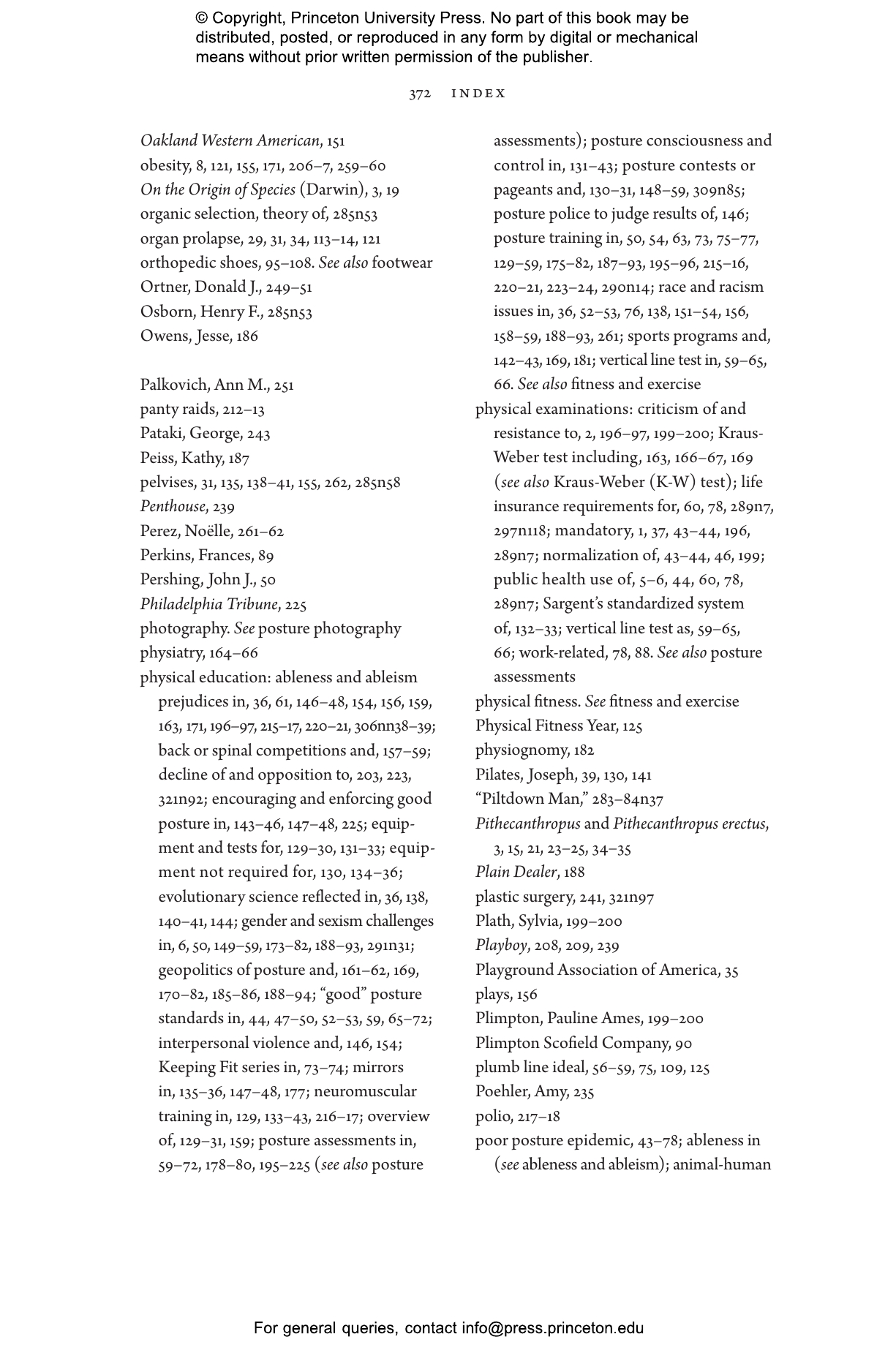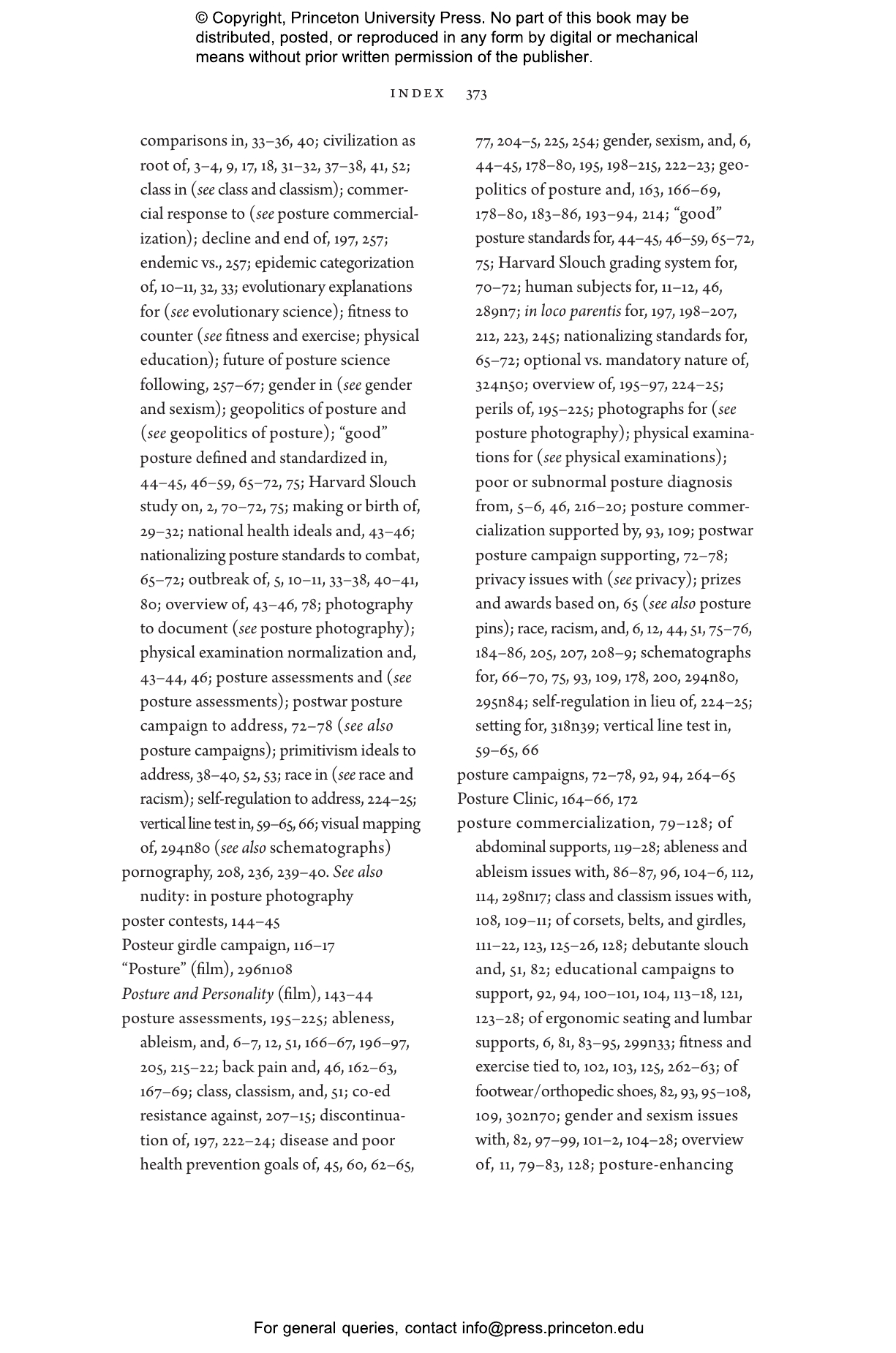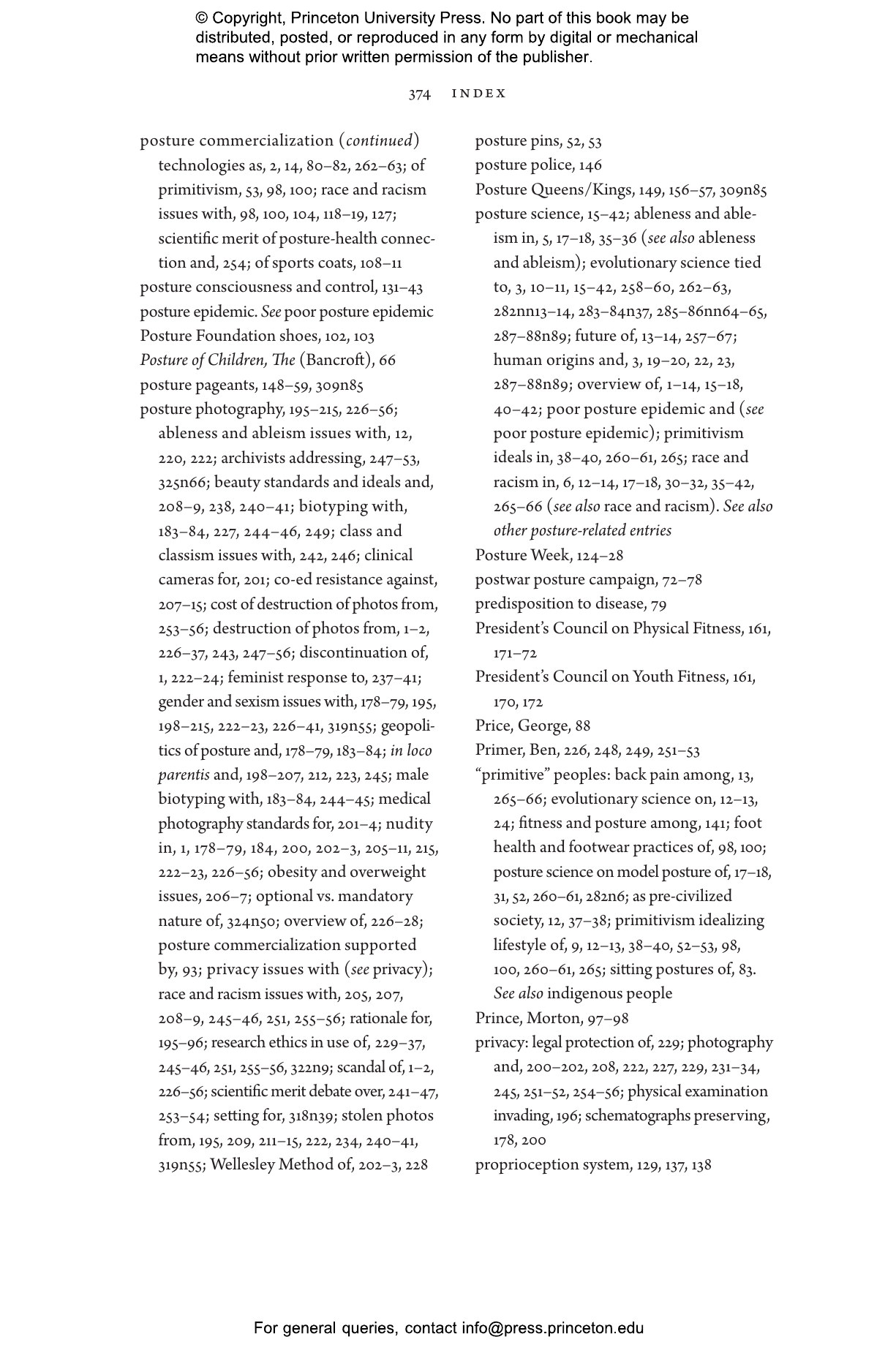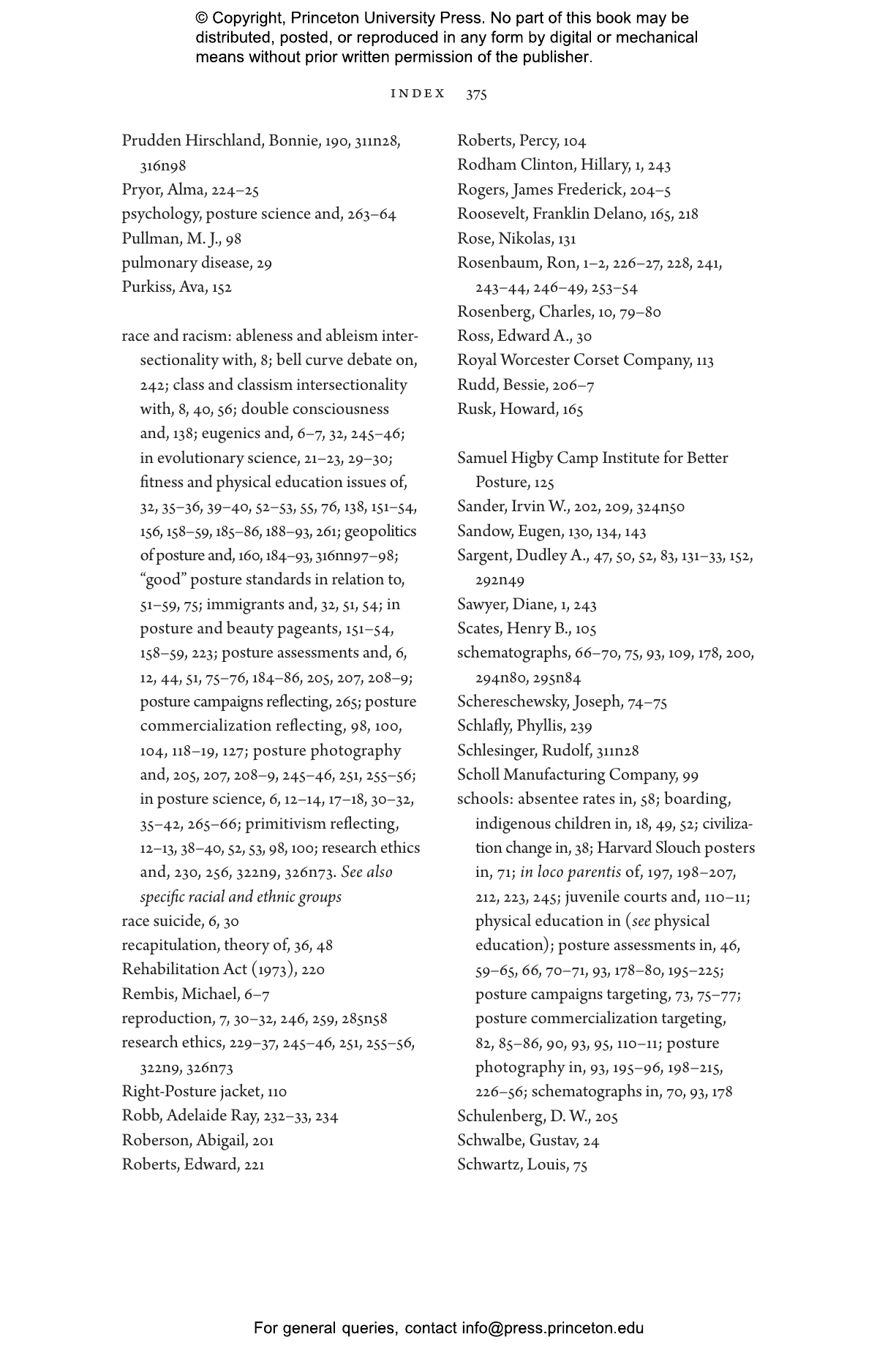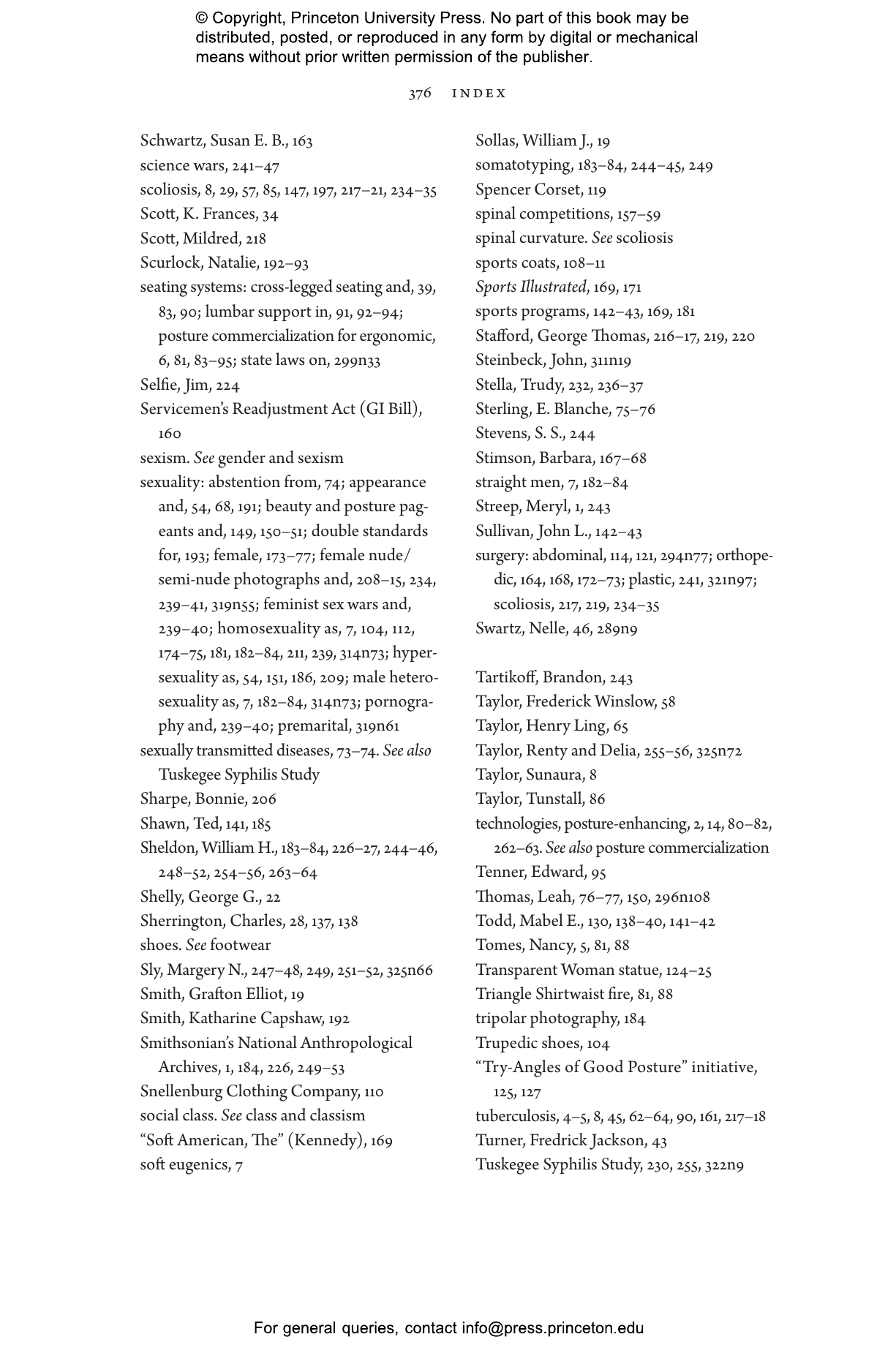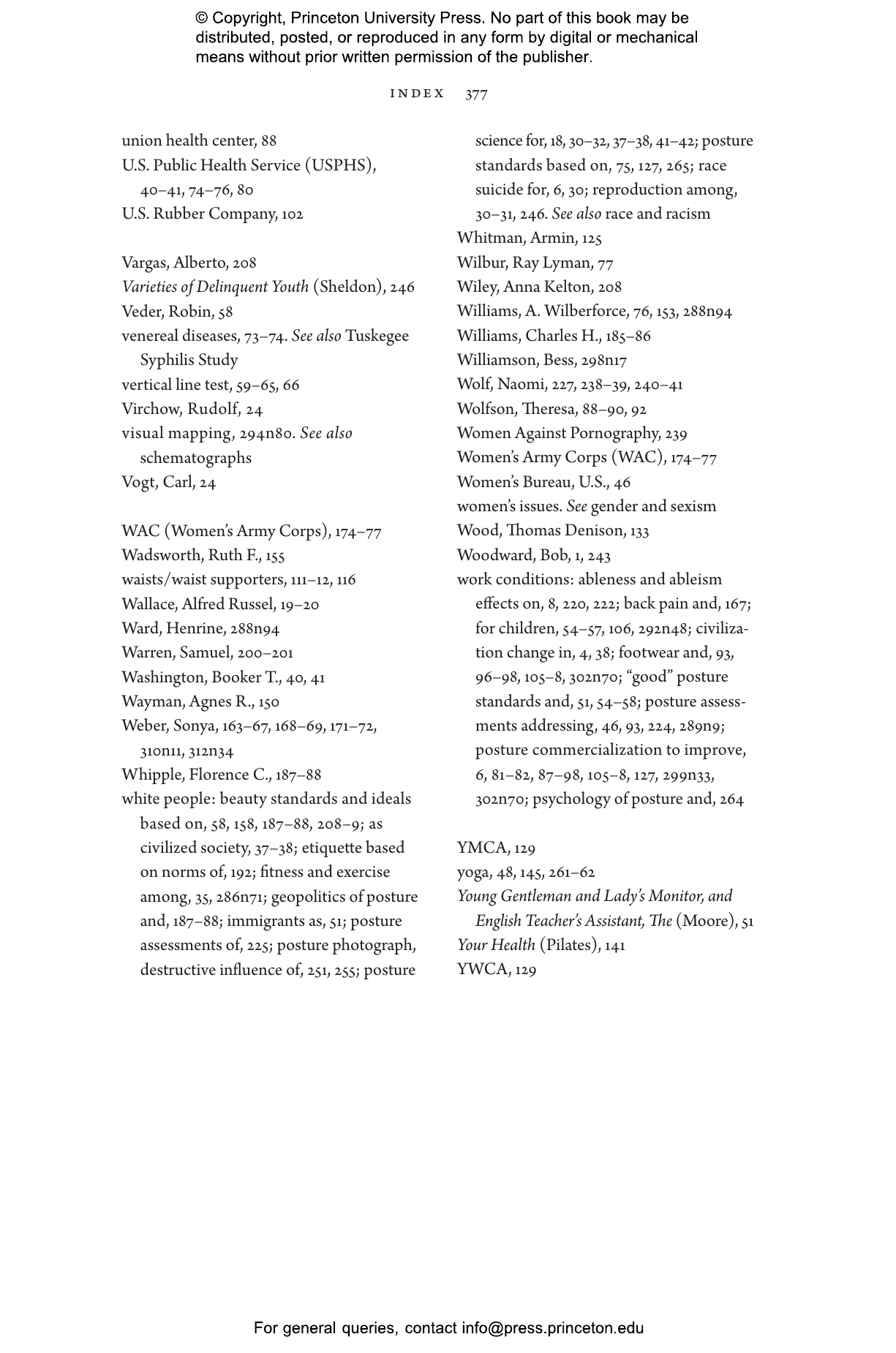In 1995, a scandal erupted when the New York Times revealed that the Smithsonian possessed a century’s worth of nude “posture” photos of college students. In this riveting history, Beth Linker tells why these photos were only a small part of the incredible story of twentieth-century America’s largely forgotten posture panic—a decades-long episode in which it was widely accepted as scientific fact that Americans were suffering from an epidemic of bad posture, with potentially catastrophic health consequences. Tracing the rise and fall of this socially manufactured epidemic, Slouch also tells how this period continues to feed today’s widespread anxieties about posture.
In the early twentieth century, the eugenics movement and fears of disability gave slouching a new scientific relevance. Bad posture came to be seen as an individual health threat, an affront to conventional race hierarchies, and a sign of American decline. What followed were massive efforts to measure, track, and prevent slouching and, later, back pain—campaigns that reached schools, workplaces, and beyond, from the creation of the American Posture League to posture pageants. The popularity of posture-enhancing products, such as girdles and lumbar supports, exploded, as did new fitness programs focused on postural muscles, such as Pilates and modern yoga. By 1970, student protests largely brought an end to school posture exams and photos, but many efforts to fight bad posture continued, despite a lack of scientific evidence.
A compelling history that mixes seriousness and humor, Slouch is a unique and provocative account of the unexpected origins of our largely unquestioned ideas about bad posture.
Awards and Recognition
- A Choice Outstanding Academic Title of the Year
"A long history of anxiety about the proximity between human and bestial nature. . . . Linker traces the history of this concern: from the exchanges of nineteenth-century scientists, who first identified the possible ancestral causes of contemporary back pain, to the late-twentieth-century popularity of the Alexander Technique, Pilates, and hatha yoga. . . . She sees the ‘past and present worries concerning posture’ . . . [are] grounded in a mythology of human ancestry that posits the hunter-gatherer as an ideal from which we have fallen."—Rebecca Mead, The New Yorker
"Astonishing."—Daniel Felsenthal, New Republic
"Well-researched."—Belinda Lanks, Wall Street Journal
"Slouch is a skillfully researched, engrossing account of a socially engineered epidemic that captured the public imagination for the better part of a century."—Shelf Awareness
"Linker expertly conveys just how embedded posture science once was — and how quickly it was forgotten."—Isabel Berwick, Financial Times
"Compelling. . . . [a] fascinating study."—Anna Katharina Schaffner, Times Literary Supplement
"An engaging book on the science of posture. . . . [Linker] provides a sophisticated critique of identifying postural problems as an ‘epidemic,’ which engages modes of surveillance and control, often internalized by each generation. . . . Highly recommended."—Choice Reviews
"[Slouch] offers insight into how persistent postural ableism harms disabled communities today and why posture continues to captivate modern research and retail. . . . Essential reading for all students and professionals whose work concerns bodies and health inequity."—Rajiv M. Sastry, Disability & Society
"A useful addition to the larger scholarship on the social, cultural, and political implications of bodily standards. . . . [Slouch] reveals the normalization and standardization of bodily comportment that was central to the posture sciences from its origins to the present and interrogates the ableism and racism at its core."—Jennifer Kaufmann-Buhler, Technology & Culture
“Slouch is a gripping read that made me sit up a little straighter in my chair—and taught me how that very impulse, while no longer imposed by campus medical inspectors or stiff ‘posture fashion,’ has come to be so ingrained in the American psyche. Our attitudes about health, beauty, ability, race, and more are vividly, and often surprisingly, revealed through how we have surveilled the shape of our spines. Beth Linker’s rigorous and accessible history illuminates our culture, politics, and society.”—Natalia Mehlman Petrzela, author of Fit Nation: The Gains and Pains of America’s Exercise Obsession
“From a preeminent historian of disability, Slouch lights up the corners where ableism still lurks. Inventive, persuasive, and important, Beth Linker’s wide-ranging book follows the curves of American posture science through the intersections of race, class, gender, sexuality, and citizenship. This book is ardently needed—to support more liberatory notions of beauty, belonging, power, consent, and what it means to be human.”—Laura Stark, author of Behind Closed Doors: IRBs and the Making of Ethical Research
“Who would have thought that slouching could be so riveting? Acclaimed historian Beth Linker has written an enthralling account of posture, prejudice, panic, and disability. Essential reading for anyone curious about bodies.”—Joanna Bourke, author of The Story of Pain: From Prayer to Painkillers
“Slouch persuasively shows that the Ivy League nude posture photo scandal was just a small part of the story of a twentieth-century public health program—one based on the false idea that there is a single optimal posture for everyone. Beth Linker does a wonderful job of straightening out the story of bent backs!”—Jonathan Marks, author of Is Science Racist?
“Slouch unearths the history of posture to reveal how it was more than a signifier of good breeding and class civility: it was a central aspect of social and personal hygiene that, if neglected, could become a public health crisis. A richly detailed book about what it meant—and means—to be ‘posture conscious.’”—Jaipreet Virdi, author of Hearing Happiness: Deafness Cures in History
